At its core, Chand Tara is not just another love story—it is a layered narrative that touches upon universal emotions such as loyalty, betrayal, justice, greed, and family bonds. Unlike many generic serials that rely solely on melodrama, this one attempts to blend entertainment with moral lessons, keeping viewers hooked while encouraging them to reflect on their own relationships and choices. That is why the demand for a detailed Chand Tara Drama Review has grown: people want to understand not just the surface-level romance but also the deeper themes that lie beneath.
When one looks at the larger landscape of Pakistani television, Chand Tara comes at a time when audiences are hungry for fresh plots yet still cherish traditional values. The drama balances these expectations by presenting modern conflicts in the setting of a culturally rooted family environment. This makes it relatable to viewers of different ages—young audiences see themselves in the struggles of ambition and love, while older viewers connect with the themes of family responsibility and generational conflict. In this sense, the Chand Tara Drama Review is not just a breakdown of episodes but also an exploration of how well the drama mirrors society.
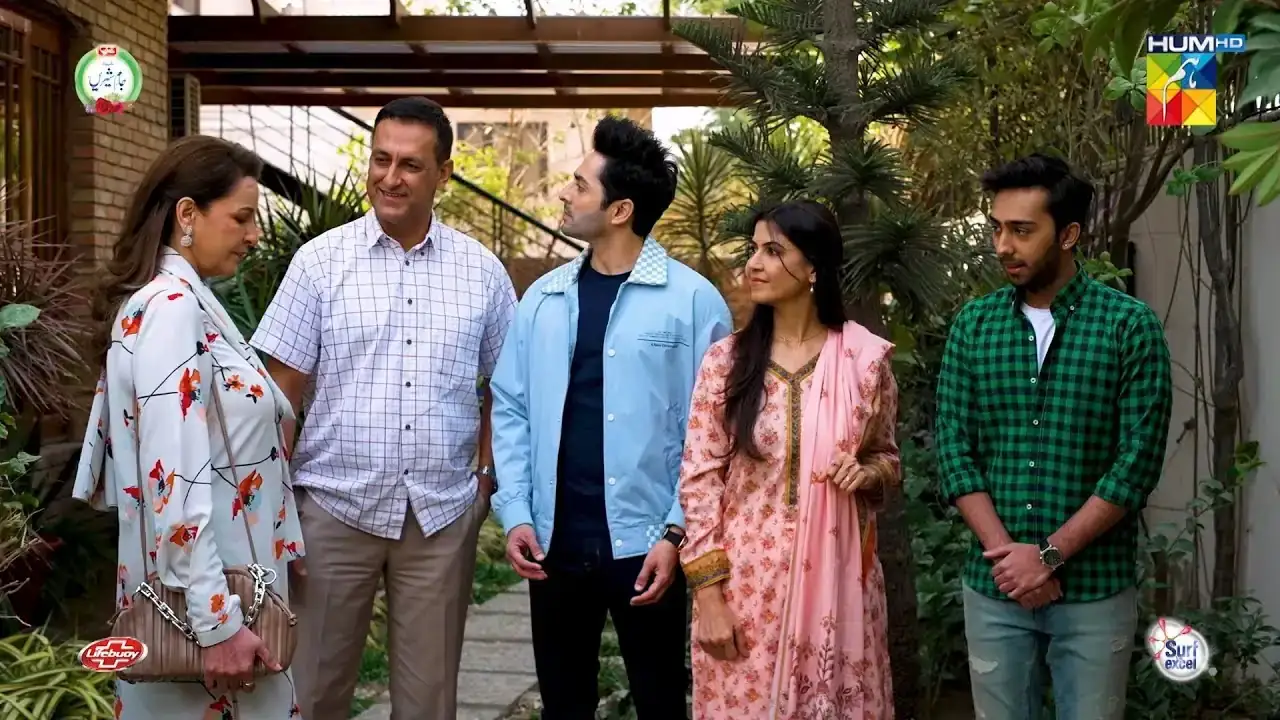
Another reason Chand Tara stands out is the way it handles character arcs. Each character is crafted with a clear purpose, whether it is to highlight the destructive power of greed, the healing force of loyalty, or the painful reality of betrayal. The protagonists are not painted in black and white; instead, they are layered with flaws and strengths, making them human and believable. This adds weight to the Chand Tara Drama Review because it allows us to analyze the depth of characterization beyond typical hero-villain dynamics.
In terms of production, direction, and cinematography, Chand Tara also succeeds in creating an immersive experience. The use of lighting, background scores, and camera angles enhances emotional scenes, ensuring that viewers remain invested in the narrative. The drama avoids unnecessary dragging, a common criticism of many serials, and instead delivers its story with a balance of intensity and pacing. As this Chand Tara Drama Review will highlight, these technical strengths elevate the show from being a simple family saga to a well-crafted piece of television.
Moreover, the drama sparks meaningful discussions about values and choices. Themes such as how greed destroys trust, how family dynamics shape personalities, and how betrayal tests relationships are not just presented as plot devices but as lessons that resonate with viewers’ real lives. When fans discuss the show on social media or in casual conversations, they often mention how certain dialogues or scenarios reminded them of personal experiences. This emotional relatability is another reason why the Chand Tara Drama Review is crucial—it helps decode why the drama struck such a strong chord with its audience.
It is also important to acknowledge that Chand Tara appeals not only to Pakistani audiences but also to international viewers who are increasingly drawn to South Asian storytelling. With the rise of streaming platforms, dramas like this have gained access to a global audience who appreciates the balance of traditional values with modern conflicts. The Chand Tara Drama Review therefore becomes significant in explaining the drama’s cultural impact beyond borders, showing how its universal themes transcend geographical boundaries.
In conclusion, the introduction to this Chand Tara Drama Review sets the stage for an in-depth exploration of the drama’s many aspects. From plot summary to character analysis, from themes of loyalty and betrayal to the technical brilliance of direction and cinematography, each section of this review will provide a comprehensive look at what makes Chand Tara an unforgettable experience. Whether you are a dedicated viewer of Pakistani dramas or someone curious about what makes them special, this review will serve as a detailed guide to understanding Chand Tara and appreciating it beyond surface-level entertainment.
Background Information
Every drama has a context, a history, and a purpose that shapes its creation and eventual success. Before diving deep into character arcs, plot intricacies, and thematic layers, it is important to understand the background that gave birth to Chand Tara. This Chand Tara Drama Review would be incomplete without tracing the journey of how this serial came into being, who was behind its production, and what cultural and entertainment backdrop it was designed to address.
Pakistani dramas have enjoyed a revival over the last decade, with stories that not only resonate with local audiences but also attract global attention. Within this landscape, Chand Tara entered as a project that was not just meant to be another family drama but rather a production that combined romance, values, and real-life struggles. The team behind the drama included well-known writers, experienced directors, and a talented cast, each of whom brought their strengths to the table. Understanding this background helps explain why the drama managed to connect so strongly with audiences and why the Chand Tara Drama Review has become a subject of widespread discussion.
The writer of Chand Tara played a crucial role in crafting its storyline. Unlike typical scripts that rely heavily on exaggerated conflicts, the writing of Chand Tara blended realistic situations with moral dilemmas. This ensured that the plot remained engaging without losing credibility. Audiences felt that the characters spoke and behaved like people they knew in real life, which instantly built a sense of relatability. Any authentic Chand Tara Drama Review must acknowledge the writing as one of the strongest pillars supporting the drama’s success.
Production houses in Pakistan often face constraints such as limited budgets or tight shooting schedules, but despite these challenges, Chand Tara was able to deliver a polished visual experience. The collaboration between the production team and the director created a seamless environment where creativity could thrive. The sets were carefully designed to reflect the warmth and struggles of a middle-class household, ensuring that the background never looked artificial or disconnected. This attention to detail becomes a key highlight in the Chand Tara Drama Review, as it demonstrates how technical finesse complements strong storytelling.
Another element worth mentioning in the background of Chand Tara is the cultural timing of its release. It came out during a phase when audiences were yearning for family-oriented content that still had modern relevance. Many dramas before it had leaned heavily into either traditional, rigid storytelling or overly modernized plots that failed to resonate with everyday viewers. Chand Tara bridged this gap beautifully. It respected traditional values while also addressing contemporary struggles like personal ambitions, misunderstandings in relationships, and the consequences of greed. That is why the Chand Tara Drama Review highlights its ability to balance old and new, attracting a wide demographic of viewers.
The casting choices also deserve recognition when discussing the background of Chand Tara. Each actor was selected not only for their popularity but also for their suitability to the roles. Casting directors paid special attention to pairing the right faces with the right personalities, ensuring the characters came alive on screen. This decision-making process is a vital part of the drama’s foundation and must be acknowledged in any authentic Chand Tara Drama Review, since strong performances stem from thoughtful casting rather than random star power.
Music and background scores played an equally important role. Pakistani audiences have long associated drama OSTs (original soundtracks) with emotional resonance, and Chand Tara delivered on this front as well. Its soundtrack became popular on streaming platforms and added another layer of relatability to the story. Whenever a key scene unfolded, the background score enhanced its intensity, making viewers remember not just the dialogue but the emotions attached to it. This adds to the overall immersive experience of the drama, something any Chand Tara Drama Review must emphasize.
It is also essential to acknowledge the director’s vision when discussing background information. The director ensured that the drama did not drag unnecessarily or lose momentum. Instead, the pacing was maintained to keep viewers hooked while still giving enough time for emotional depth. This balance is not easy to achieve, especially in family dramas where multiple subplots are at play. Highlighting this vision in the Chand Tara Drama Review helps readers appreciate how crucial direction is in transforming a script into a memorable series.
In addition, the social media landscape played a role in Chand Tara’s popularity. With platforms like YouTube, Twitter, and Instagram buzzing with fan discussions, the drama gained momentum not just on TV but also online. This dual presence allowed it to reach younger audiences who primarily consume content digitally. Any thorough Chand Tara Drama Review must account for this factor because in today’s world, a drama’s success is not measured by television ratings alone but also by online engagement and international reach.
In summary, the background of Chand Tara sets the stage for understanding why it became a standout drama. From thoughtful writing and meticulous casting to cultural timing and social media buzz, every element contributed to its widespread success. This Chand Tara Drama Review shows that the drama was not just an accidental hit—it was a carefully crafted project that resonated deeply with audiences by combining authenticity, relatability, and quality production values. Knowing this background allows us to better appreciate the plot, characters, and themes that we will explore in the upcoming sections.
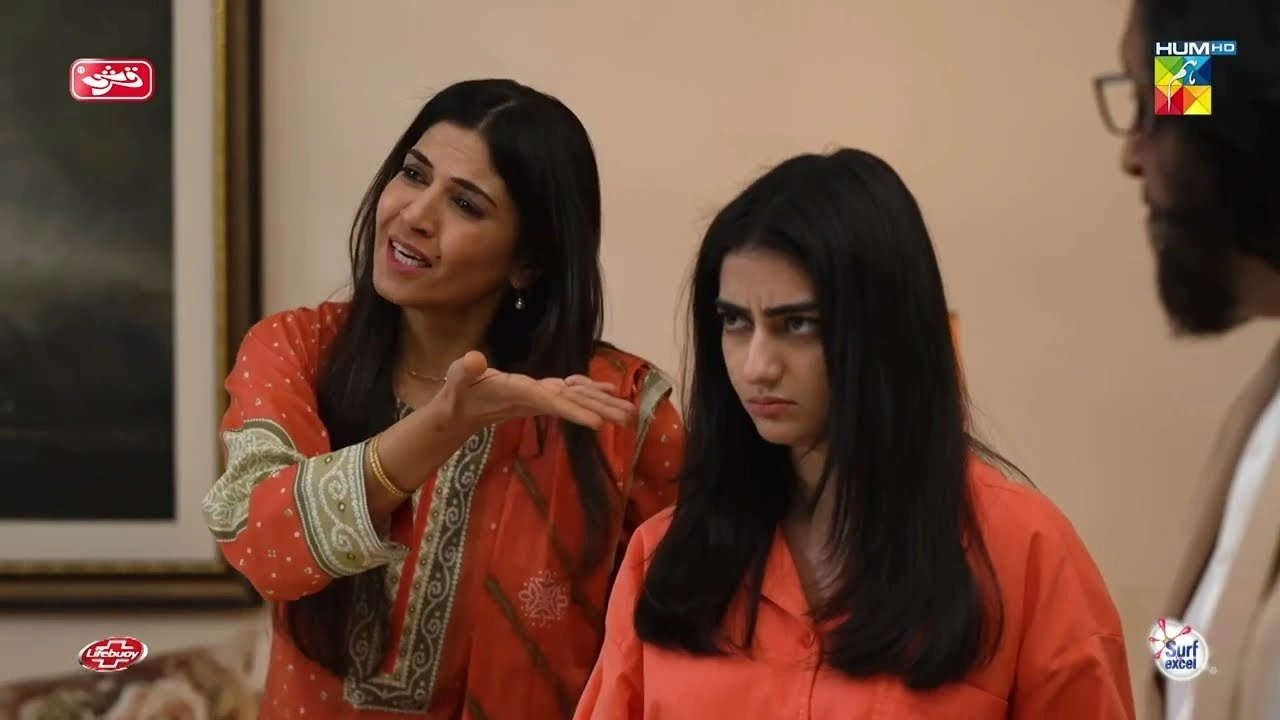
Plot Summary
A good drama is only as strong as the story it tells, and Chand Tara weaves together a narrative that is both captivating and emotionally relatable. At first glance, it appears to be a simple love story, but as the episodes unfold, layers of family dynamics, betrayal, loyalty, and personal ambitions emerge. This Chand Tara Drama Review aims to provide a detailed plot summary that captures the essence of the story while highlighting the major twists that kept viewers eagerly waiting for each new episode.
The drama begins by introducing viewers to two very different individuals—Chand and Tara—whose lives intersect in unexpected ways. Chand represents practicality, ambition, and responsibility, while Tara is portrayed as free-spirited, emotional, and somewhat idealistic. Their contrasting personalities form the foundation of the central conflict. From the beginning, the writers make it clear that their love story will not be a straightforward fairy tale but one filled with struggles, compromises, and external pressures. This initial setup sets the stage for a Chand Tara Drama Review that emphasizes the balance between romance and realism.
As the story progresses, Chand and Tara’s relationship develops slowly, marked by moments of genuine affection but also frequent misunderstandings. They represent the modern couple torn between personal dreams and family obligations. Chand, deeply tied to his sense of duty, often struggles to balance his ambitions with his emotional needs. Tara, on the other hand, constantly seeks validation for her individuality and refuses to be confined by rigid traditions. Their dynamic creates an ongoing push and pull that mirrors real-life relationships. Any honest Chand Tara Drama Review must underline how these relatable struggles are what make the drama so engaging.
The plot thickens with the introduction of secondary characters, each of whom plays a pivotal role in shaping the central story. Family members from both sides become heavily involved in Chand and Tara’s relationship, often adding fuel to conflicts instead of resolving them. Greed, jealousy, and betrayal seep into the narrative through these secondary characters, creating subplots that enhance the complexity of the drama. Viewers are reminded that in Pakistani family settings, relationships are rarely limited to two individuals—they are tied into larger family structures where everyone’s actions affect the couple’s future. Highlighting this dynamic is essential in a Chand Tara Drama Review, as it gives depth to the story.
A major turning point in the drama occurs when betrayal enters the picture. One of the characters closest to the central couple acts out of selfishness, leading to devastating consequences. This betrayal not only tests Chand and Tara’s love but also exposes the fragile foundation upon which their relationship rests. At this stage, the drama takes a darker turn, focusing on themes of trust, justice, and the destructive impact of greed. These episodes became some of the most talked-about moments on social media, demonstrating how invested the audience had become. The Chand Tara Drama Review must highlight this arc because it marks the transition from a light-hearted romance to a deeper exploration of human flaws.
Alongside betrayal, loyalty emerges as a counterbalancing theme. While some characters succumb to greed and self-interest, others remain steadfast in their loyalty to Chand and Tara. These supportive characters provide strength in times of crisis and highlight the importance of trust in relationships. By juxtaposing loyalty and betrayal, the story reinforces the idea that relationships are defined not only by love but also by the choices people make when faced with temptation. This duality is an important aspect of the Chand Tara Drama Review, showcasing how the drama skillfully portrays life’s moral dilemmas.
As the story nears its climax, the characters face the consequences of their actions. Justice, both legal and moral, becomes central to the resolution. The antagonists who thrived on deceit and greed eventually face downfall, while Chand and Tara learn valuable lessons about compromise, forgiveness, and resilience. Instead of opting for an unrealistically perfect ending, the writers chose a conclusion that balances hope with realism. The couple’s relationship survives but not without scars, reminding viewers that love is a journey of constant effort rather than an idealized destination. This nuanced resolution is a highlight in the Chand Tara Drama Review, as it leaves viewers with a sense of closure while still reflecting the realities of life.
What makes the plot of Chand Tara memorable is not just the central romance but the way it interweaves family dynamics, societal pressures, and personal growth. The drama avoids falling into the trap of predictability by introducing unexpected twists at just the right moments. Whether it was the shocking betrayal, the small gestures of loyalty, or the heartwarming family reconciliations, every plot point contributed meaningfully to the overall narrative. In a saturated television industry, this balance of unpredictability and relatability helped Chand Tara stand out, a fact that this Chand Tara Drama Review cannot emphasize enough.
In summary, the plot of Chand Tara is a journey filled with emotional highs and lows. It starts with a love story, evolves into a commentary on family dynamics, takes detours into betrayal and justice, and ultimately delivers a message about resilience and forgiveness. By weaving together universal themes in a culturally rooted setting, the drama created an unforgettable experience for its audience. This Chand Tara Drama Review shows that the plot is not only entertaining but also deeply reflective of the struggles and triumphs faced in everyday life.
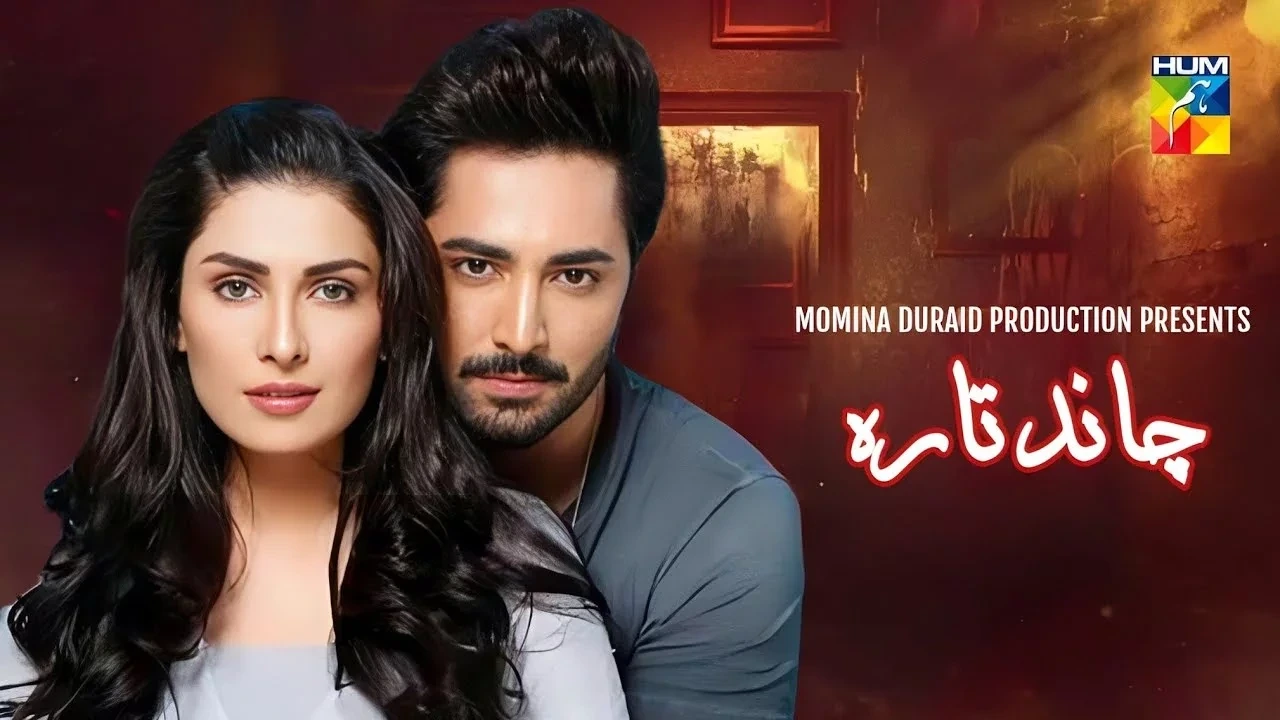
Chand Tara Drama Info | Chand Tara OST Credits
| Song Theme | Chand Tara |
|---|---|
| Drama | Chand Tara |
| Drama Title (English Meaning) | Moon Stars |
| Year | 2023 |
| Genre | Drama, Comedy |
| Lead Cast | Danish Taimoor, Ayeza Khan |
| Director | Danish Nawaz |
| Producer | Momina Duraid |
| Production House | MD Production |
| Series Writer | Saima Akram Chaudhry |
| Theme Song Singers | Rafay Israr, Damia Farooq |
| Theme Music Composer | Naveed Nashad |
| Theme Song Lyricist | Ahsan Talish |
| Number of Episodes | 30 |
| Show Released Date | 23 March 2023 |
| Show End Date | 21 April 2023 |
| Channel | Hum TV |
| Language | Urdu |
| Country | Pakistan |
Character Analysis
No drama can truly succeed without memorable characters, and Chand Tara is a shining example of how well-developed roles bring a story to life. The plot may provide the foundation, but it is the characters who drive emotions, create conflicts, and deliver the themes that make the drama impactful. In this Chand Tara Drama Review, the focus shifts to analyzing the central characters and supporting roles, looking at how their personalities, strengths, and flaws contribute to the larger narrative.
Chand – The Voice of Reason
Chand, one of the two protagonists, is a character built on responsibility, ambition, and grounded values. He represents the archetype of a person who constantly struggles to balance duty with desire. While his love for Tara is genuine, his tendency to over-prioritize responsibility often creates friction in their relationship. Chand’s character is not portrayed as flawless; his stubbornness and rigid approach sometimes make him seem emotionally unavailable. Yet, these very flaws make him believable and relatable. In any Chand Tara Drama Review, Chand deserves recognition as the anchor of the story—he symbolizes stability while simultaneously embodying the inner conflicts of modern individuals caught between tradition and personal happiness.
Tara – The Free Spirit
Tara, the second protagonist, provides a striking contrast to Chand. She is expressive, emotional, and driven by the desire to live life on her own terms. While Chand represents practicality, Tara symbolizes individuality and passion. Her willingness to challenge family norms often makes her appear rebellious, but it is this same trait that endears her to viewers who admire her courage. Tara’s greatest strength is her emotional intelligence—she feels deeply and is unafraid to express herself—but her impulsiveness sometimes causes misunderstandings. In this Chand Tara Drama Review, Tara emerges as a symbol of freedom, reminding audiences of the importance of individuality even in the midst of family responsibilities.
The Antagonists – Faces of Greed and Betrayal
Every drama needs conflict, and Chand Tara provides it through antagonistic characters who embody greed, jealousy, and betrayal. While their names may differ depending on the audience’s interpretation, their roles are universal. These characters create hurdles in Chand and Tara’s journey, motivated by self-interest and envy. One of the most significant betrayals comes from within the family circle, proving how damaging unchecked greed can be. The antagonists are not cartoonishly evil; rather, they are portrayed as people whose flaws have overtaken their humanity. This realistic depiction adds depth to the Chand Tara Drama Review, as it shows that villains in our lives often wear familiar faces.
Supporting Characters – The Silent Pillars
In addition to protagonists and antagonists, Chand Tara features several supporting characters who enrich the story. These individuals may not dominate screen time, but they play crucial roles in providing perspective, loyalty, and wisdom. Whether it is the loyal sibling who stands by Chand and Tara during difficult times or the elder family member who represents cultural values, each supporting role adds nuance to the story. They function as mirrors, highlighting the moral contrasts between loyalty and betrayal. Any thorough Chand Tara Drama Review must give credit to these characters for balancing the narrative and preventing the story from becoming one-dimensional.
The Relationship Dynamic
The most fascinating aspect of character development in Chand Tara is the dynamic between Chand and Tara themselves. Their love story is not painted in perfect colors—it is marked by misunderstandings, arguments, and compromises. This imperfection makes their relationship believable. Viewers see their own struggles reflected in the couple, whether it’s balancing personal ambitions with family expectations or learning to forgive flaws in a partner. This dynamic becomes the emotional core of the Chand Tara Drama Review, as it highlights how realistic writing and authentic performances can elevate a simple romance into something deeply moving.
Moral Contrasts in Characters
Another point worth emphasizing is how characters in Chand Tara serve as moral contrasts to one another. Chand’s practicality balances Tara’s impulsiveness, while loyal family members counteract the betrayal of antagonists. This duality ensures that the drama explores both the light and dark sides of human nature. In a way, the characters symbolize larger themes: Chand as justice, Tara as freedom, antagonists as greed, and supporters as loyalty. Such symbolic representation adds layers of meaning, making the drama more than just entertainment. That is why the Chand Tara Drama Review must highlight how well each character’s personality ties back to the broader themes of the story.
Performances That Brought Characters Alive
It is also important to mention the performances that gave life to these characters. The actors portrayed their roles with subtlety and emotional depth, avoiding exaggerated dramatics. Whether it was Chand’s quiet strength, Tara’s fiery independence, or the antagonists’ manipulative charm, each performance felt natural. This realism in acting contributed significantly to the drama’s success. In the context of the Chand Tara Drama Review, the performances deserve special recognition for bridging the gap between the written script and the audience’s emotional connection.
Conclusion of Character Analysis
In conclusion, the characters of Chand Tara are its greatest strength. They are flawed, human, and relatable, making the story resonate with viewers on a personal level. From the central couple to the supporting cast, each role adds value to the narrative, ensuring that the drama never loses depth. This Chand Tara Drama Review shows that strong characterization, when combined with authentic performances, can elevate a drama from being a simple family saga to an unforgettable journey of emotions, lessons, and self-reflection.
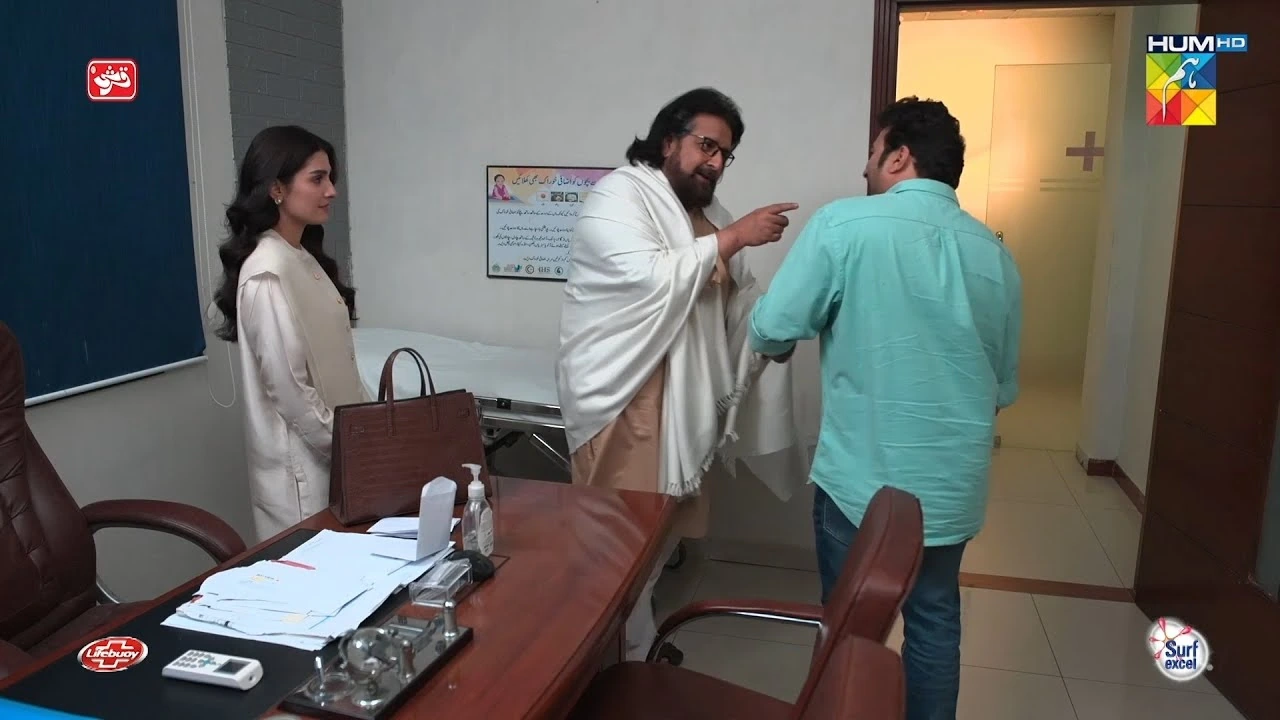
Cast Name and Role
One of the most important elements in any drama’s success is the choice of its cast. The right actors can turn a well-written script into a memorable journey, while poor casting often weakens even the strongest storylines. In Chand Tara, the cast played a defining role in making the drama resonate with audiences across Pakistan and beyond. Every actor, whether in a lead or supporting role, brought authenticity and depth to their character. In this section of the Chand Tara Drama Review, we will examine the key cast members, their roles, and how their performances elevated the drama’s impact.
Ayeza Khan as Tara
Ayeza Khan, one of Pakistan’s most celebrated actresses, played the role of Tara with exceptional brilliance. Known for her versatility and ability to embody diverse characters, Ayeza infused Tara with charm, passion, and emotional intensity. Tara’s free-spirited nature, her fiery independence, and her struggles with balancing individuality against family traditions came alive through Ayeza’s nuanced performance. Audiences connected instantly with her portrayal, praising how naturally she expressed Tara’s vulnerability and strength. Any Chand Tara Drama Review would be incomplete without acknowledging that Ayeza Khan was the heart and soul of the series, making Tara a character viewers will not easily forget.
Danish Taimoor as Chand
Opposite Ayeza, Danish Taimoor played the role of Chand. With his calm demeanor and strong screen presence, Danish perfectly embodied Chand’s responsible, grounded, and sometimes rigid personality. Chand is a character who often struggles between ambition and emotional connection, and Danish portrayed this inner conflict with subtlety. His chemistry with Ayeza Khan was one of the highlights of the drama, making their relationship dynamic both relatable and engaging. Fans praised how effortlessly he balanced strength with vulnerability, proving once again why he remains a popular face in Pakistani television. For this Chand Tara Drama Review, Danish’s role as Chand deserves recognition as the steady anchor around which the entire narrative revolved.
Supporting Cast – Adding Depth and Dimension
While Ayeza and Danish formed the central pair, the supporting cast added crucial layers of depth to the story. Each actor was carefully chosen for their role, and their contributions ensured that Chand Tara never felt one-dimensional.
-
Romaisa Khan delivered a strong performance as one of Tara’s closest confidantes, representing loyalty and emotional support in times of crisis.
-
Maha Hasan brought warmth and relatability to her role, reminding viewers of the importance of family bonds and friendships.
-
Adnan Jaffar, playing one of the antagonistic characters, gave the narrative its edge. His portrayal of selfishness and betrayal was so convincing that viewers couldn’t help but feel both anger and fascination at his performance.
In this Chand Tara Drama Review, it is important to highlight that the supporting cast ensured the drama went beyond being a simple love story. They provided moral contrasts, served as catalysts for major plot twists, and made the family dynamics believable.
Chemistry Between the Leads
One of the standout factors of Chand Tara was the undeniable chemistry between Ayeza Khan and Danish Taimoor. Both actors are not only married in real life but also share a natural ease on screen that resonates with audiences. Their playful banter, emotional confrontations, and romantic moments all felt organic rather than scripted. This chemistry added authenticity to Chand and Tara’s relationship, making viewers root for them even in the midst of misunderstandings and conflicts. In many ways, the Chand Tara Drama Review owes much of its positivity to the lead pair’s compelling performances.
Character Portrayals and Audience Reception
Each actor’s portrayal resonated strongly with viewers, sparking discussions across social media platforms. Ayeza Khan’s portrayal of Tara was especially praised for breaking away from stereotypical portrayals of women in Pakistani dramas. Instead of being shown as submissive, Tara was presented as a woman with agency and individuality. Danish Taimoor’s Chand was equally appreciated for representing a realistic male character—flawed yet deeply committed. Supporting cast members, such as Romaisa and Adnan Jaffar, were applauded for bringing authenticity to their roles. These performances contributed significantly to the drama’s overall success, making the Chand Tara Drama Review a celebration not only of its story but also of the talent behind it.
Impact of the OST on Performances
While the cast carried the drama with their performances, the original soundtrack (OST) played a vital role in amplifying their emotions. The music often highlighted the intensity of Ayeza and Danish’s scenes, making their performances even more memorable. This synergy between acting and music became a defining trait of Chand Tara, one that deserves mention in the Chand Tara Drama Review.
Conclusion of Cast Analysis
To sum it up, the cast of Chand Tara was one of its greatest strengths. Ayeza Khan and Danish Taimoor carried the drama with their powerful portrayals of Tara and Chand, while the supporting actors added depth, contrast, and realism to the story. Each performance, whether large or small, contributed meaningfully to the narrative. This Chand Tara Drama Review clearly shows that without this talented ensemble, the drama would not have achieved the same level of success or emotional impact. The casting choices were deliberate and thoughtful, ensuring that every character felt real and every emotion was believable.
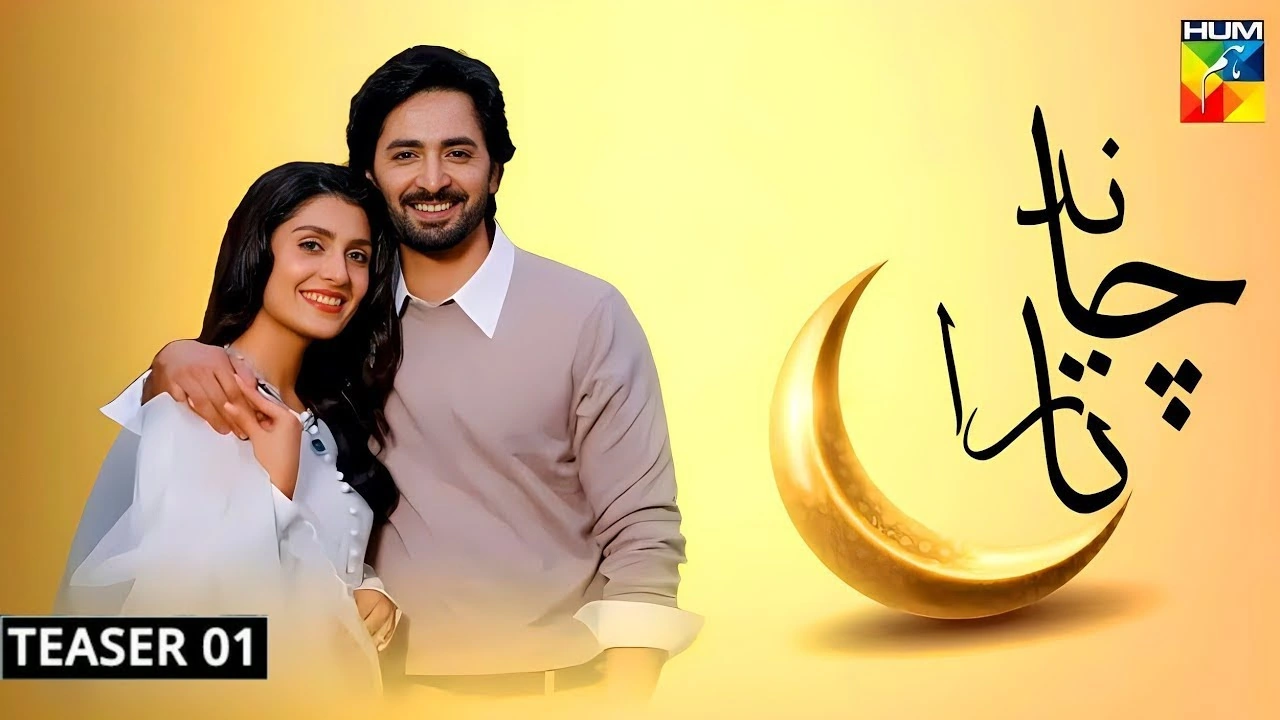
Themes and Messages
Behind every memorable drama lies a set of themes and messages that resonate with the audience long after the final episode has aired. Chand Tara is more than just a love story—it is a mirror reflecting the realities of relationships, family life, and the moral choices that define human nature. This Chand Tara Drama Review explores the key themes woven into the narrative, explaining how they give the drama both depth and relevance.
Love as a Journey, Not a Destination
At the heart of the story lies the theme of love. Unlike many serials that portray love as an idealized, picture-perfect relationship, Chand Tara presents it as a journey filled with compromise, misunderstandings, and resilience. Chand and Tara’s love is not flawless; it is tested repeatedly by family interference, betrayal, and their own contrasting personalities. This portrayal sends an important message: love is not about perfection but about patience, forgiveness, and continuous effort. For any Chand Tara Drama Review, this theme stands out as one of the most relatable aspects for audiences who see their own struggles reflected on screen.
Loyalty and Betrayal
Two of the strongest recurring themes in the drama are loyalty and betrayal. Characters who remain loyal, such as Tara’s closest supporters, serve as the moral backbone of the story. They prove that trust and consistency are essential for maintaining relationships. On the other hand, betrayal comes in devastating forms, often from those closest to the protagonists. The drama shows how betrayal can shatter trust, destabilize families, and leave scars that take years to heal. The stark contrast between loyalty and betrayal ensures that viewers reflect on their own choices and relationships. In this Chand Tara Drama Review, the drama’s exploration of these themes demonstrates how fragile yet vital trust is in human connections.
Greed and Its Consequences
Another central theme is greed, and its destructive impact forms a key conflict in the story. Antagonistic characters driven by selfish desires cause chaos in Chand and Tara’s lives. Whether it is financial greed, envy of relationships, or the hunger for control, the drama repeatedly shows that greed never leads to long-term satisfaction. Instead, it creates division, exposes vulnerabilities, and eventually leads to downfall. This message is one of the most powerful takeaways from the story and must be emphasized in the Chand Tara Drama Review, as it aligns with the moral lessons Pakistani dramas are known for delivering.
Justice and Accountability
The drama also highlights justice as both a theme and a resolution. Wrongdoers, no matter how powerful, eventually face the consequences of their actions. The narrative suggests that while justice may be delayed, it is never denied. This theme reinforces the idea of accountability in relationships and society as a whole. Viewers appreciated that Chand Tara did not allow antagonists to escape unscathed, making justice an integral part of the resolution. For a Chand Tara Drama Review, this theme is important because it connects to the viewers’ sense of fairness and moral closure.
Family Dynamics and Generational Conflicts
Family plays a central role in Chand Tara. The drama carefully portrays the complexities of family dynamics—how love, jealousy, expectations, and obligations coexist within one household. Elders often represent tradition, while younger members push for independence, creating a generational clash that feels authentic and relatable. These family dynamics highlight the struggles of living in tightly knit communities where personal choices are rarely private. This universal theme resonates deeply with South Asian audiences and gives depth to the Chand Tara Drama Review, as it reflects the cultural roots of the drama.
Resilience and Forgiveness
The story also emphasizes resilience—the ability to withstand emotional challenges and still move forward. Both Chand and Tara face moments when giving up seems easier than continuing their relationship. However, their ability to forgive each other and rebuild trust sends a strong message about endurance in love and family life. Forgiveness is not portrayed as weakness but as strength, showing that moving forward often requires letting go of bitterness. This theme adds an uplifting dimension to the Chand Tara Drama Review, leaving viewers with a sense of hope.
The Role of Individuality
Tara’s character embodies another powerful theme: individuality. In a society where women are often expected to sacrifice their ambitions for family, Tara represents the struggle to maintain identity while balancing relationships. Her refusal to fully conform to societal expectations sparks debates but also inspires viewers who believe in self-expression. This theme is critical to the Chand Tara Drama Review, as it broadens the drama’s appeal beyond romance, addressing gender roles and the importance of personal freedom.
Takeaway Messages
What sets Chand Tara apart from many dramas is the clarity of its messages. It does not simply entertain; it teaches. The key lessons include: love requires effort, greed leads to destruction, loyalty builds strength, betrayal causes downfall, justice prevails, and family bonds—despite their challenges—remain central to happiness. These messages are not forcefully imposed but naturally flow through the storyline, which is why they resonate so strongly with the audience.
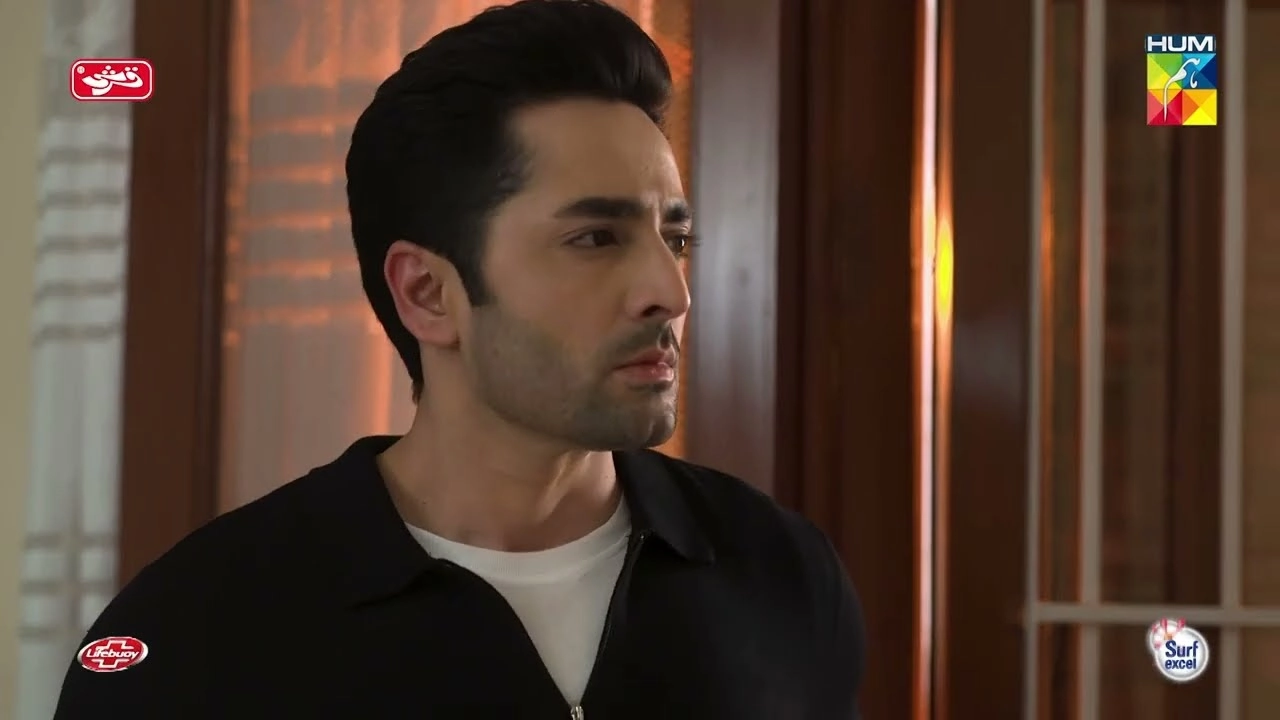
Conclusion of Themes and Messages
In conclusion, the themes and messages of Chand Tara are what elevate it from being just another family drama to a meaningful narrative with long-lasting impact. By addressing universal human experiences such as love, loyalty, betrayal, justice, greed, and family dynamics, the drama ensures that every viewer takes away something personal. This Chand Tara Drama Review highlights how the series succeeds in combining entertainment with moral lessons, making it both emotionally engaging and thought-provoking.
Loyalty
Loyalty is one of the strongest and most consistent themes explored in Chand Tara. While the drama revolves around love and family, loyalty becomes the glue that holds relationships together, testing the characters in ways that reveal their true selves. This Chand Tara Drama Review would not be complete without a deep exploration of how loyalty is portrayed throughout the story, its significance in shaping the plot, and the lessons it leaves behind for viewers.
Loyalty in Love
At the heart of Chand Tara lies the relationship between Chand and Tara, whose journey is defined by trials of loyalty. Their love is far from perfect—frequent misunderstandings, clashing priorities, and family interference often shake their bond. Yet, it is their loyalty to one another that keeps them from giving up entirely. Even in moments of conflict, both characters show that loyalty is not about blindly agreeing with each other but about staying committed to the relationship despite hardships. This nuanced portrayal of loyalty makes the love story both realistic and relatable, and any Chand Tara Drama Review must highlight how loyalty transforms their relationship from a fragile romance into a resilient bond.
Family Loyalty
In Pakistani culture, family loyalty is often considered sacred, and Chand Tara reflects this cultural reality with depth and accuracy. Characters are frequently torn between loyalty to their families and their own personal desires. Chand, for instance, is often caught in the middle, trying to balance his loyalty to Tara with his sense of duty to his family. Tara, too, faces moments where her individuality clashes with her loyalty to those she loves. The drama shows how family loyalty can be both a source of strength and a source of tension, depending on how it is expressed. This conflict adds richness to the Chand Tara Drama Review, as it mirrors the real struggles faced by many in society.
Loyalty Versus Self-Interest
Loyalty is further highlighted by contrasting it with self-interest. Characters who remain steadfast in their loyalty stand out against those driven by greed or betrayal. For example, Tara’s confidantes show unwavering loyalty by supporting her in moments of crisis, offering emotional strength when she feels isolated. On the other hand, characters motivated by personal gain betray trust and disrupt relationships. This stark contrast emphasizes the moral lesson that loyalty creates unity while selfishness breeds chaos. A detailed Chand Tara Drama Review must underline how the drama uses this contrast to reinforce the importance of selflessness in human relationships.
Loyalty as a Test of Character
One of the most impactful elements of Chand Tara is how it uses loyalty as a test of character. Characters are often placed in situations where they must choose between personal comfort and loyalty to loved ones. Those who remain loyal are rewarded with respect and long-term trust, while those who falter face isolation and consequences. This pattern demonstrates that loyalty is not just an emotional bond but also a reflection of integrity. By portraying loyalty as a moral test, the drama resonates deeply with viewers who understand how difficult yet essential it is to remain loyal in the face of temptation. This point strengthens the Chand Tara Drama Review, showing the drama’s relevance beyond entertainment.
The Emotional Weight of Loyalty
Loyalty is not portrayed in Chand Tara as an abstract idea; it carries emotional weight that impacts the lives of characters. When loyalty is upheld, it provides comfort and stability. When it is broken, it causes pain and disillusionment. Chand and Tara’s journey is a testament to how loyalty can heal misunderstandings, while betrayals from secondary characters remind viewers of the devastation that comes when loyalty is absent. These emotional consequences make the theme resonate strongly with audiences, which is why this Chand Tara Drama Review emphasizes loyalty as a central pillar of the story.
Cultural Relevance of Loyalty
The drama also reflects the cultural significance of loyalty in South Asian societies. In many households, loyalty to family, tradition, and relationships is considered the ultimate virtue. Chand Tara captures this cultural expectation while also exploring the challenges it creates in modern times. Characters like Tara push against traditional boundaries, showing that loyalty should not come at the expense of individuality. By doing so, the drama sparks a meaningful conversation about balancing loyalty with personal freedom, making it a highly relevant theme for contemporary viewers. This cultural angle strengthens the Chand Tara Drama Review, showing how the drama bridges tradition and modernity.
Lessons About Loyalty
Perhaps the most important takeaway is the lesson that Chand Tara teaches about loyalty: it is not about perfection but about persistence. Relationships will always face challenges, but loyalty ensures that people stick together through thick and thin. The drama shows that loyalty requires patience, sacrifice, and resilience, but it also brings long-lasting rewards in the form of trust and love. This message is one of the strongest reasons why Chand Tara has resonated with so many viewers, and why the Chand Tara Drama Review must highlight loyalty as its most powerful theme.
Conclusion of Loyalty
In conclusion, loyalty in Chand Tara is not portrayed as a simple concept but as a multi-dimensional force that shapes love, family, and personal choices. Whether in the bond between Chand and Tara, the ties within family, or the contrast with betrayal, loyalty remains at the heart of the drama’s message. This Chand Tara Drama Review makes it clear that the portrayal of loyalty is one of the reasons the drama succeeded in connecting so deeply with its audience. It is both a reminder and a lesson that true relationships thrive not on perfection, but on steadfast loyalty.
Betrayal
If loyalty is the heart of Chand Tara, betrayal is the wound that challenges it. No drama is complete without conflict, and betrayal provides the sharp edge that transforms Chand Tara from a simple love story into a complex emotional journey. Betrayal in the drama does not come only from distant outsiders—it comes from those closest to the protagonists, making it all the more painful and relatable. In this Chand Tara Drama Review, we’ll explore how betrayal is portrayed, its impact on characters, and why it resonates so strongly with viewers.
Betrayal in Love
The relationship between Chand and Tara is constantly tested by betrayal—sometimes in small misunderstandings, other times in life-altering decisions. While neither Chand nor Tara intentionally betrays the other, moments of emotional neglect and unspoken doubts feel like betrayals in themselves. Chand’s occasional inability to prioritize Tara makes her question his loyalty, while Tara’s impulsive decisions sometimes create the impression that she isn’t fully committed. These subtle forms of betrayal reflect the realities of modern relationships, where lack of communication often feels as damaging as outright disloyalty. This realistic depiction is a strong reason why the Chand Tara Drama Review emphasizes betrayal as a recurring theme.
Family Betrayal
Perhaps the most powerful form of betrayal in Chand Tara comes from within the family circle. Audiences often remarked on how painful it was to watch relatives act selfishly, undermining the trust placed in them. One of the most shocking moments in the drama is when a family member, motivated by jealousy and greed, takes actions that directly harm Chand and Tara’s relationship. This betrayal struck a chord with viewers because it mirrored real-life experiences—where the people we trust most sometimes let us down. The Chand Tara Drama Review highlights this theme as one of the drama’s most relatable and emotionally charged elements.
Betrayal as a Contrast to Loyalty
The drama skillfully uses betrayal as a contrast to loyalty. Just as some characters stand firmly by Chand and Tara, others betray them at the worst possible moments. This contrast creates emotional tension and keeps viewers invested, waiting to see who will prove trustworthy and who will not. For example, Tara’s loyal friends highlight the importance of support, while Chand’s experience with betrayal underscores the danger of misplaced trust. By pairing betrayal with loyalty, the drama teaches that true relationships can only be distinguished in moments of crisis. This duality deserves attention in the Chand Tara Drama Review, as it elevates the emotional impact of the story.
Psychology of Betrayal
What makes the portrayal of betrayal in Chand Tara particularly compelling is its psychological depth. The betrayers are not painted as evil caricatures; they are flawed individuals driven by envy, greed, or insecurity. This nuanced approach reminds viewers that betrayal often arises from human weakness rather than sheer malice. In doing so, the drama avoids simplistic storytelling and instead offers a layered exploration of human behavior. This makes the betrayals not only more believable but also more heartbreaking, and any Chand Tara Drama Review must emphasize how this realism contributed to the drama’s success.
Consequences of Betrayal
Betrayal in Chand Tara is never without consequences. Those who betray others may succeed in creating temporary chaos, but they ultimately face emotional isolation and moral downfall. For Chand and Tara, betrayal leaves scars that test their resilience and force them to redefine their relationship. This cycle of betrayal and consequence sends a clear message: deceit might bring short-term gain, but it leads to long-term suffering. This lesson resonated strongly with audiences, making the drama not just entertainment but also a moral reflection. The Chand Tara Drama Review highlights this as one of the drama’s most important life lessons.
Betrayal in a Cultural Context
In Pakistani society, where family honor and loyalty are deeply valued, betrayal carries even greater weight. Chand Tara reflects this cultural truth by showing how betrayal not only impacts individuals but also disrupts entire households. A single act of disloyalty can cause rifts that echo across generations. By weaving betrayal into a family setting, the drama speaks to audiences on both personal and cultural levels, which is why the Chand Tara Drama Review recognizes it as one of the most powerful narrative devices in the story.
The Emotional Resonance of Betrayal
One reason betrayal struck such a chord with viewers is its emotional relatability. Many audience members shared that certain scenes reminded them of their own experiences of being let down by loved ones. This emotional connection is what made the drama so engaging; it reflected reality rather than presenting a fairy tale. The Chand Tara Drama Review therefore emphasizes how betrayal was not simply a plot device but an emotional trigger that kept viewers invested until the very end.
Resolution and Forgiveness
While betrayal leaves lasting pain, Chand Tara also explores the possibility of forgiveness. The protagonists learn that holding on to anger only deepens wounds. Instead, they choose resilience and forgiveness, though not without difficulty. This resolution provides hope while still acknowledging the real damage betrayal can cause. It teaches viewers that while betrayal is inevitable in human relationships, healing is possible with time, patience, and understanding. This important message is central to the Chand Tara Drama Review, as it leaves the audience with a sense of closure and reflection.
Conclusion of Betrayal
In conclusion, betrayal in Chand Tara is one of its most defining and impactful themes. From subtle neglect in love to shocking acts within family, betrayal shapes the characters’ journeys and provides moral lessons for the audience. By portraying betrayal realistically and pairing it with consequences, the drama ensures that viewers not only feel the pain but also understand the importance of resilience and forgiveness. This Chand Tara Drama Review makes it clear that betrayal is not just an obstacle in the story—it is the force that tests relationships, reveals true character, and ultimately delivers some of the drama’s most unforgettable lessons.

Justice
Justice is a theme that runs like an undercurrent throughout Chand Tara, shaping not only the trajectory of the plot but also the moral compass of the story. Where loyalty and betrayal set up the emotional conflicts, justice provides the framework for resolution. In this Chand Tara Drama Review, justice is not confined to the legal sense but is portrayed in multiple dimensions—moral justice, social justice, emotional justice, and even poetic justice. The drama explores what it means to achieve fairness in relationships, in families, and in society at large.
Justice in Relationships
One of the most striking ways justice appears in Chand Tara is through relationships. Chand and Tara’s love story is not just about emotions but also about fairness. Both characters make mistakes, and the drama emphasizes the importance of acknowledging wrongs and making amends. For example, when misunderstandings create distance, justice is served not by punishment but by honest communication and reconciliation. This portrayal reflects real-life dynamics, where fairness and mutual respect form the basis of lasting bonds. The Chand Tara Drama Review highlights how this focus on justice in relationships resonates deeply with viewers who value equality and respect in love.
Justice Within Families
In South Asian societies, family plays a central role in shaping lives, and Chand Tara mirrors this cultural truth. Justice within families becomes a key conflict in the story. Parents and elders sometimes impose decisions that seem unfair to younger members, and the younger generation struggles between obedience and the pursuit of personal happiness. Tara, in particular, faces moments where she must fight for her right to be treated fairly, not as a dependent but as an individual. This theme of justice within families connects strongly with viewers who have experienced similar struggles, and it is a central point in this Chand Tara Drama Review.
Justice Against Betrayal
As explored in the previous section, betrayal is a recurring element in Chand Tara. Justice provides the necessary counterbalance. Characters who betray others face the consequences of their actions—whether through social rejection, the loss of trust, or emotional isolation. The drama does not rely on legal courts or judges; instead, it presents justice as a natural outcome of human behavior. Those who act selfishly find themselves alone, while those who uphold loyalty and love are ultimately rewarded. This moral justice is one of the most satisfying elements for the audience and deserves emphasis in the Chand Tara Drama Review.
Poetic Justice
The concept of poetic justice—where good is rewarded and evil is punished—appears frequently in Chand Tara. For instance, characters who attempt to manipulate situations for personal gain eventually become victims of their own schemes. Conversely, those who show resilience and integrity, like Tara, find happiness despite obstacles. This poetic justice gives the drama a sense of balance and closure, reinforcing moral lessons for viewers. By weaving poetic justice into the plot, the writers ensured that audiences felt emotionally satisfied by the conclusion, a point worth noting in this Chand Tara Drama Review.
Justice and Social Commentary
Beyond personal and family conflicts, Chand Tara also addresses broader issues of social justice. It touches on themes such as gender roles, class differences, and societal expectations. Tara, as a strong female lead, challenges stereotypes by asserting her right to independence and fairness. Her struggles represent the challenges faced by many women in conservative societies who seek justice in the form of equal treatment and respect. This social commentary adds depth to the drama, making it more than just entertainment. The Chand Tara Drama Review underscores how the drama uses its platform to spark discussions on justice in real life.
The Emotional Impact of Justice
Justice in Chand Tara is not cold or detached—it carries immense emotional weight. When wrongdoers are exposed, viewers feel a sense of relief. When loyal characters are rewarded, the audience feels joy and satisfaction. These emotional highs and lows keep viewers invested, as they crave to see justice prevail. By tying justice to emotional catharsis, the drama ensures that its message leaves a lasting impression. This emotional resonance is another reason why this Chand Tara Drama Review recognizes justice as a cornerstone of the story.
Injustice as a Driving Force
Interestingly, much of the plot is driven by injustice before justice is restored. Chand and Tara face repeated instances of unfair treatment—whether from manipulative relatives or societal pressures. These injustices create the tension that propels the drama forward. Viewers feel anger and frustration when they witness unfairness, which makes the eventual restoration of justice even more powerful. This cycle of injustice and resolution highlights the importance of justice not only as a theme but also as a storytelling device. The Chand Tara Drama Review points out how this structure kept the audience hooked throughout the series.
The Lesson of Justice
The ultimate lesson of justice in Chand Tara is that fairness, integrity, and truth will always prevail in the long run. The drama teaches that justice may be delayed but cannot be denied. It reassures viewers that while betrayal, greed, and selfishness may cause temporary setbacks, loyalty, honesty, and love ultimately triumph. This uplifting message is one of the reasons the drama resonated so strongly with audiences, and it is a vital point in this Chand Tara Drama Review.
Conclusion of Justice
In conclusion, justice in Chand Tara is portrayed as a universal principle that governs relationships, families, and society. By showing justice in its many forms—emotional, moral, social, and poetic—the drama delivers lessons that go beyond the screen. It reassures viewers that fairness will always find a way to prevail, even in the most difficult circumstances. This Chand Tara Drama Review makes it clear that justice is not just a subplot but a defining theme that gives the drama its moral depth and emotional power.
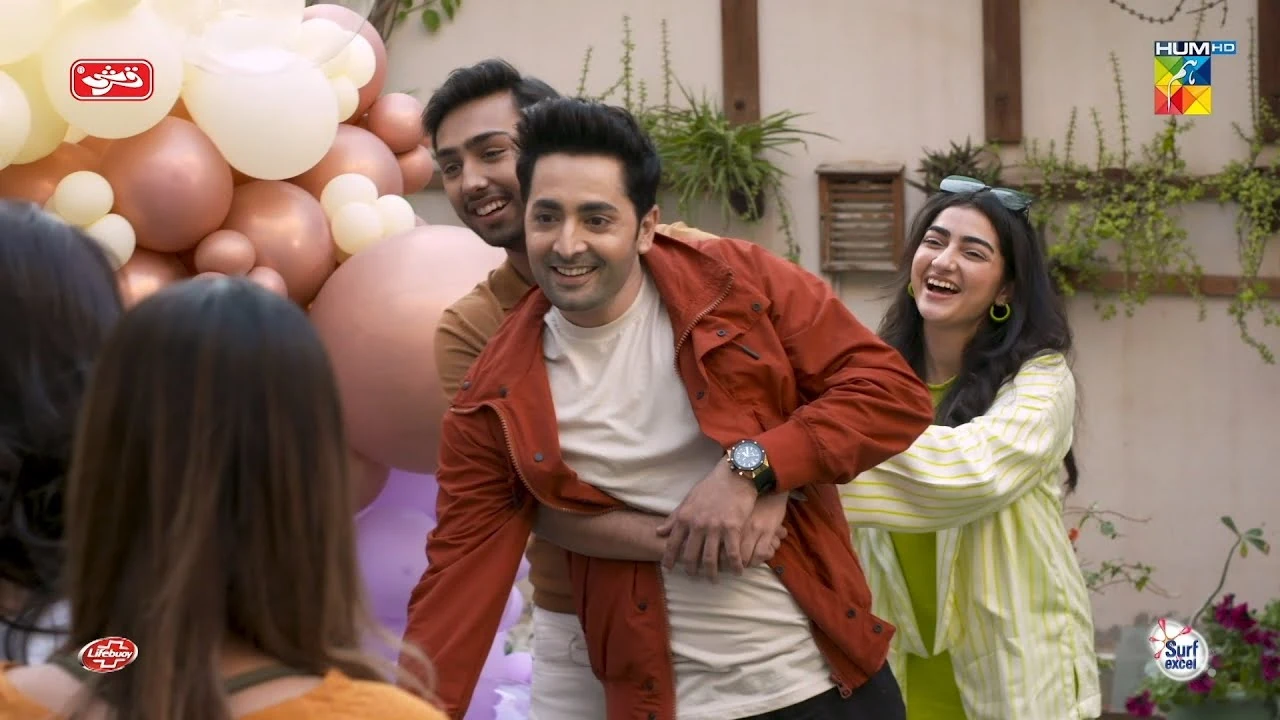
Greed and Its Consequences
Greed is one of the most destructive forces in human relationships, and Chand Tara portrays this theme with depth and intensity. In the drama, greed does not only mean material wealth—it extends to power, influence, and control over others. This Chand Tara Drama Review emphasizes how greed acts as a silent poison that slowly corrodes bonds of trust, loyalty, and love. The consequences of greed ripple across the narrative, shaping the fate of characters and delivering unforgettable moral lessons.
Greed in Material Wealth
One of the clearest depictions of greed in Chand Tara is the desire for material wealth. Some characters are driven by the urge to gain money and property at any cost, even if it means harming their own family members. These moments are painful to watch because they reflect real-life scenarios where financial gain often comes before family harmony. The drama captures this tension vividly, showing how greed for money blinds individuals to morality and compassion. The Chand Tara Drama Review notes that these storylines struck a chord with viewers because they mirrored common struggles in society.
Greed for Power and Control
Greed in Chand Tara goes beyond money—it often manifests as the hunger for power and control. Certain characters betray others not for financial reasons but simply to gain influence within the household or community. This greed for dominance leads to manipulation, gossip, and exploitation, which ultimately disrupts family unity. By portraying greed in such diverse forms, the drama reminds audiences that the desire for control can be just as destructive as the lust for money. The Chand Tara Drama Review highlights this portrayal as one of the drama’s strongest elements in showing the many faces of greed.
The Emotional Cost of Greed
One of the drama’s most compelling insights is that greed carries not only social consequences but also deep emotional costs. Characters who pursue greed-driven goals often find themselves isolated, mistrusted, and burdened by guilt. For example, when certain family members prioritize personal gain over collective happiness, they lose the love and respect of those closest to them. This emotional downfall is even more devastating than financial loss, and the Chand Tara Drama Review emphasizes how these consequences were portrayed with heartbreaking realism.
Greed as a Catalyst for Betrayal
Greed and betrayal are tightly intertwined in Chand Tara. In fact, many of the betrayals explored earlier stem directly from greed. Characters driven by envy or selfish desires make choices that harm others, setting off a chain reaction of mistrust and conflict. This dynamic keeps the audience emotionally engaged, as viewers can sense that greed will inevitably lead to betrayal and disaster. The Chand Tara Drama Review points out that this cause-and-effect relationship adds depth and tension to the plot.
Consequences Within the Family
Perhaps the most striking consequence of greed in Chand Tara is its impact on family dynamics. Families, which should provide love and support, are torn apart by individuals prioritizing their own interests. Greed leads to disputes over inheritance, jealousy between siblings, and conflicts between elders and younger members. This realistic portrayal of greed’s destructive power resonated deeply with viewers, many of whom have witnessed or experienced similar conflicts. The Chand Tara Drama Review emphasizes that the drama’s ability to reflect these realities made it more than just entertainment—it was a mirror of society.
Moral Consequences of Greed
The drama also stresses the moral consequences of greed. Characters who engage in selfish, greedy behavior may temporarily succeed, but they eventually face moral and emotional collapse. This reflects the age-old truth that greed can never lead to lasting happiness. By weaving this lesson into the storyline, the drama reinforces cultural and religious values that condemn greed and praise humility. The Chand Tara Drama Review acknowledges that these moral undertones were a key reason the drama resonated with a wide audience.
Greed Versus Contentment
Another powerful aspect of the narrative is the contrast between greed and contentment. While some characters are destroyed by their endless desires, others find peace in appreciating what they already have. Chand and Tara themselves embody this contrast—they may face obstacles and challenges, but their refusal to give in to greed allows them to hold on to love and hope. This juxtaposition highlights the futility of greed and the power of gratitude. The Chand Tara Drama Review recognizes this contrast as a central message that adds philosophical depth to the drama.
Poetic Justice Against Greed
In the end, Chand Tara ensures that greed does not go unpunished. Characters who let greed dictate their choices face poetic justice—losing the very things they sought to gain. Whether it is wealth, control, or respect, greed strips them of everything meaningful. Conversely, those who reject greed and embrace honesty and love find true fulfillment. This resolution reinforces the timeless truth that greed is self-destructive, a point strongly underscored in this Chand Tara Drama Review.
Conclusion of Greed and Its Consequences
In conclusion, Chand Tara masterfully portrays greed as a destructive force that damages individuals, families, and communities. Through its depiction of material greed, hunger for power, and emotional consequences, the drama teaches that greed may promise temporary satisfaction but ultimately leads to emptiness and loss. By contrasting greed with contentment, the story delivers a timeless message that continues to resonate with audiences. This Chand Tara Drama Review makes it clear that greed and its consequences form one of the drama’s most powerful and morally instructive themes.
Family Dynamics
One of the strongest elements that sets Chand Tara apart from many other dramas is its nuanced exploration of family dynamics. In South Asian culture, family is not just a social unit but the very backbone of life—shaping identities, relationships, and even ambitions. This Chand Tara Drama Review emphasizes how the drama brilliantly captures the joys, conflicts, and complexities that arise within family structures. From generational clashes to sibling rivalries, from parental expectations to marital bonds, Chand Tara weaves an emotional narrative that resonates deeply with audiences who see reflections of their own households on screen.
The Central Role of Family in the Story
Unlike many serials that focus primarily on a couple’s romance, Chand Tara situates love within the broader context of family. Chand and Tara’s relationship cannot be separated from the family environment around them. Their love story is influenced by parental authority, sibling opinions, and the overarching cultural emphasis on family honor. This setting allows the drama to highlight how individual happiness often collides with collective expectations, a conflict that many viewers can relate to. In this Chand Tara Drama Review, it becomes clear that the family is not just a background but the heartbeat of the drama.
Generational Conflicts
One of the recurring themes in Chand Tara is the clash between generations. Parents and elders often hold traditional values, while the younger generation seeks independence and modernity. Tara, for example, frequently finds herself torn between respecting her elders’ decisions and asserting her own choices. These generational conflicts add layers of tension, yet they also open space for dialogue and growth. The Chand Tara Drama Review highlights how these moments reflect real-life struggles, where younger family members often wrestle with balancing obedience and self-determination.
Parental Influence and Expectations
In South Asian households, parental influence carries immense weight, and Chand Tara portrays this with authenticity. Parents, with their deep love and concern, often impose decisions they believe are best for their children. However, these decisions sometimes clash with the desires of Chand, Tara, and other younger characters. For example, career paths, marriage choices, and lifestyle decisions become battlegrounds where love collides with duty. This tension reflects a central reality of family life, and the Chand Tara Drama Review emphasizes how the drama portrays these conflicts without vilifying parents—showing instead their genuine concern, even when misguided.
Sibling Rivalries and Support
Another fascinating aspect of family dynamics in Chand Tara is the role of siblings. At times, siblings serve as allies, offering emotional support and standing up for one another. At other times, jealousy and rivalry creep in, leading to betrayal and manipulation. This duality creates drama while also capturing the truth of sibling relationships. The Chand Tara Drama Review observes that audiences appreciated these portrayals because they mirrored the love-hate bonds siblings often share in real families.
Marriage as a Family Affair
In the cultural setting of Chand Tara, marriage is never just about two individuals—it’s a union of families. Chand and Tara’s relationship becomes a focal point for larger family dynamics, with elders and relatives weighing in on every decision. This not only adds emotional pressure but also highlights how personal love stories are often shaped by collective family approval or disapproval. The Chand Tara Drama Review underscores how the drama uses marriage to explore deeper issues of loyalty, tradition, and compromise.
Family as a Source of Conflict and Healing
Interestingly, family in Chand Tara is both the cause of conflict and the source of healing. While misunderstandings, greed, and betrayal often arise from within the family unit, reconciliation and love also stem from the same relationships. This duality gives the drama emotional balance—viewers cry over family conflicts but also rejoice when those same families come together again. The Chand Tara Drama Review notes that this cyclical portrayal of conflict and healing reflects the resilience of family ties in real life.
The Role of Women in Family Dynamics
Tara’s character, in particular, highlights the role of women within family structures. As a daughter, sister, and eventually a partner, she constantly navigates expectations placed upon her. Her struggle for independence while maintaining family harmony resonates with many women who face similar dilemmas. Mothers and daughters-in-law also play significant roles, often embodying both support and resistance within the household. This portrayal deepens the drama’s authenticity, and the Chand Tara Drama Review highlights it as a key factor in its popularity among female audiences.
Cultural Reflection Through Family
What makes Chand Tara powerful is how it reflects cultural truths through family dynamics. Whether it is the importance of respecting elders, the emphasis on collective decision-making, or the challenges of living in joint families, the drama mirrors everyday realities of South Asian households. This cultural reflection ensures that viewers not only watch a story but also see their own lives and struggles represented. The Chand Tara Drama Review stresses that this relatability is one of the drama’s greatest strengths.
The Message About Family
Ultimately, the message of Chand Tara is clear: families are imperfect but irreplaceable. They may cause pain, misunderstandings, and even betrayals, but they also provide love, forgiveness, and strength. The drama suggests that despite conflicts, family ties should be nurtured and respected. This lesson resonates deeply in societies where family remains the cornerstone of identity. The Chand Tara Drama Review highlights this as the moral takeaway from the drama’s depiction of family dynamics.
Conclusion of Family Dynamics
In conclusion, family dynamics are not just a subplot in Chand Tara—they are the very fabric of the drama. By portraying generational clashes, sibling relationships, parental expectations, and the cultural significance of marriage, the drama captures the complexity of family life. This Chand Tara Drama Review makes it clear that family serves as both the greatest challenge and the greatest strength in the story, leaving audiences with a deeper appreciation for the beauty and complexity of familial bonds.
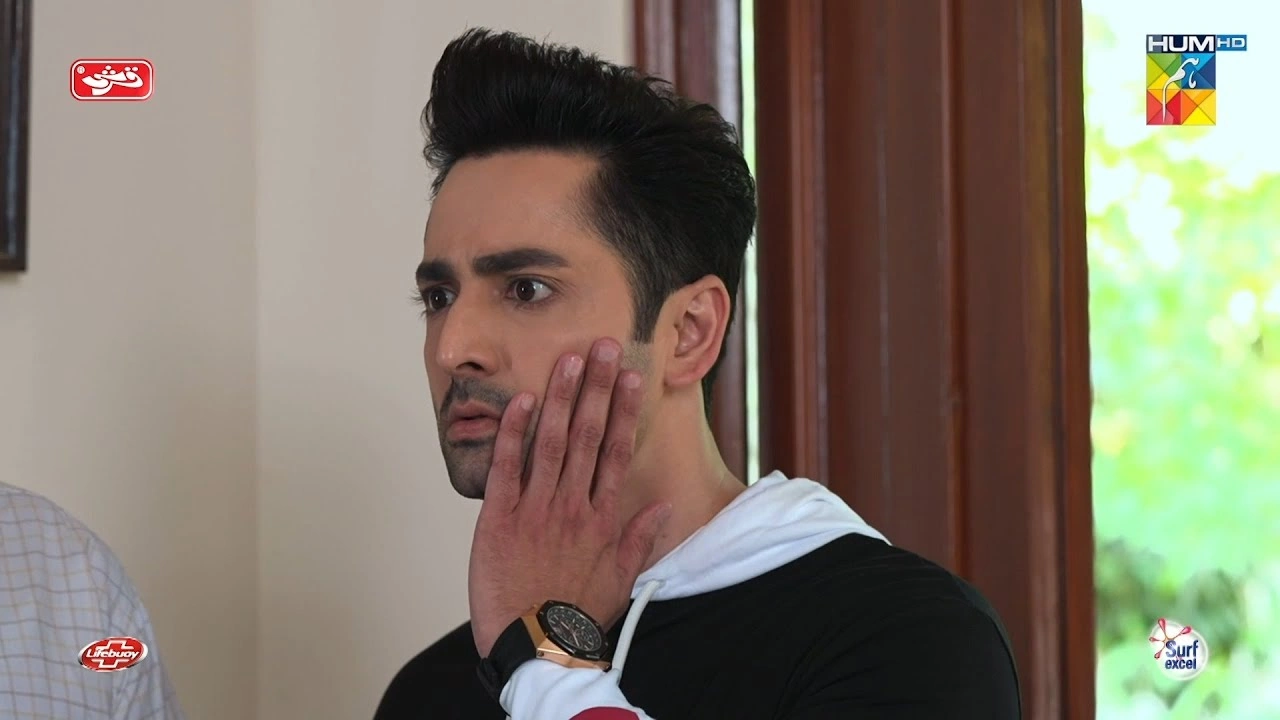
Direction and Cinematography
Every drama has a story to tell, but the way that story is presented depends heavily on its direction and cinematography. In Chand Tara, these two elements elevate the narrative from a simple tale of love and family into a visually captivating and emotionally powerful experience. This Chand Tara Drama Review highlights how the director’s choices and the cinematographer’s artistry combined to create a drama that felt authentic, engaging, and visually memorable.
Vision of the Director
At the heart of any successful drama lies the director’s vision, and in Chand Tara, the director deserves credit for balancing traditional storytelling with modern execution. Instead of relying solely on melodrama or predictable tropes, the director gave space for characters to grow and conflicts to unfold naturally. This created a flow that kept viewers invested from beginning to end. The Chand Tara Drama Review notes that this vision allowed the drama to strike a delicate balance between entertainment and moral messaging.
Storytelling Through Direction
The direction in Chand Tara is marked by subtlety and restraint. Instead of exaggerating emotions through loud confrontations or over-the-top gestures, the director often let silence, pauses, and meaningful glances do the work. These techniques amplified the intensity of certain scenes, especially those revolving around betrayal, loyalty, or family tension. For example, in moments of heartbreak, the choice to let characters sit in silence created a far more powerful effect than any dialogue could. The Chand Tara Drama Review emphasizes how this approach showcased maturity in storytelling.
Cinematography and Visual Appeal
If direction sets the tone, cinematography paints the picture. Chand Tara made excellent use of lighting, framing, and angles to enhance emotional depth. Bright, warm tones were used in moments of love and harmony, while darker, muted shades dominated scenes of betrayal or greed. The contrast not only heightened emotions but also guided viewers through the shifting moods of the story. Wide shots of family gatherings highlighted the closeness and tension of the household, while close-ups captured raw, unfiltered emotions. According to this Chand Tara Drama Review, the cinematography was one of the drama’s strongest technical achievements.
Symbolism in Cinematography
The cinematographer often used visual symbolism to reinforce the drama’s themes. For example, the moon and stars—reflections of the drama’s title Chand Tara—appeared in key moments, symbolizing hope, love, and guidance amidst chaos. Similarly, the use of mirrors, doors, and windows often symbolized division, choices, and transitions in characters’ lives. These subtle touches gave the drama layers of meaning that attentive viewers could appreciate. The Chand Tara Drama Review highlights how these visual symbols gave the show an artistic edge rarely seen in mainstream dramas.
Realism in Settings
Another strength of Chand Tara lies in its realistic settings. The director and cinematographer avoided overly glamorous or artificial sets, instead choosing natural, relatable environments. Family homes, markets, and workplaces were depicted with authenticity, grounding the drama in everyday life. This realism allowed audiences to connect more deeply with the characters, as the backdrop reflected their own experiences. In this Chand Tara Drama Review, it’s worth noting that the setting became almost a character in itself, reinforcing the drama’s themes of love, conflict, and family ties.
Use of Lighting and Colors
Lighting played a critical role in enhancing the emotional tone of the story. Soft, golden hues created warmth in family celebrations, while stark contrasts of light and shadow emphasized tension in moments of conflict. Colors, too, were carefully chosen: whites and pastels represented innocence and love, while darker shades signified jealousy, betrayal, or greed. These artistic choices ensured that viewers felt the emotions not just through dialogue but also visually. The Chand Tara Drama Review observes that such attention to detail elevated the viewing experience.
Direction of Performances
Good direction is not just about camera work; it’s about bringing out the best in actors. In Chand Tara, the director managed to extract authentic, nuanced performances from the entire cast. Each actor, whether in a lead or supporting role, delivered with depth and sincerity. Emotional confrontations felt raw rather than staged, and even lighter moments carried charm without being forced. The Chand Tara Drama Review notes that this level of performance was possible because of the director’s ability to guide the actors into living their characters rather than simply playing them.
Pacing and Shot Composition
The drama’s pacing was carefully supported by the director’s use of shot composition. Long takes allowed emotional moments to breathe, while quick cuts increased the intensity during confrontations. The mixture of traditional shot structures with occasional experimental angles kept the drama visually dynamic. In key moments, slow-motion shots or zoom-ins were used sparingly, which prevented the narrative from slipping into melodrama. This balance made Chand Tara engaging for both traditional drama lovers and modern audiences. The Chand Tara Drama Review emphasizes that this technical consistency kept viewers hooked throughout the series.
Cultural Aesthetics in Cinematography
The drama also made a deliberate effort to incorporate cultural aesthetics into its cinematography. Traditional clothing, décor, and household structures were captured with respect and elegance, creating a sense of cultural pride. Scenes of family gatherings, festivals, and rituals were depicted in a visually stunning yet authentic manner. This not only added richness to the narrative but also allowed international audiences to connect with the cultural backdrop of the story. The Chand Tara Drama Review identifies this as one of the drama’s subtle but significant achievements.
Conclusion of Direction and Cinematography
In conclusion, the direction and cinematography of Chand Tara transformed it from a simple family drama into a visual and emotional masterpiece. The director’s vision, combined with powerful use of lighting, symbolism, and authentic settings, gave depth to every frame. The cinematographer’s artistry ensured that viewers not only followed the story but also felt immersed in it. This Chand Tara Drama Review concludes that the show’s technical brilliance played a vital role in its success, making it both relatable and aesthetically captivating.
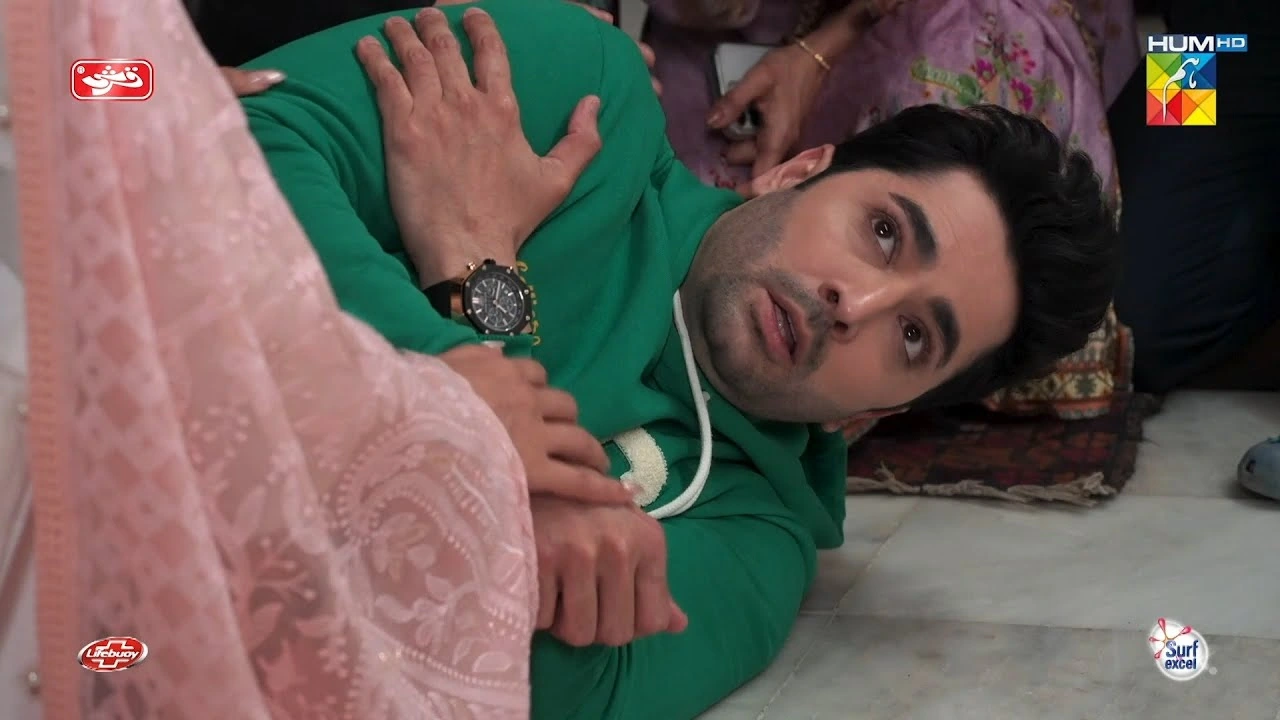
Pacing and Plot Twists
One of the major factors that determines how a drama is received by audiences is its pacing—the rhythm at which the story unfolds—and the plot twists that keep viewers on the edge of their seats. In Chand Tara, pacing and plot twists were executed with a careful balance, ensuring that the drama remained engaging without feeling rushed or dragged. This Chand Tara Drama Review dives into how the storytelling techniques of pacing and unexpected turns contributed to the drama’s overall success.
The Importance of Balanced Pacing
In many dramas, slow pacing can frustrate viewers, while overly fast pacing can leave them feeling overwhelmed or disconnected. Chand Tara avoided these extremes by maintaining a consistent flow. Early episodes established the characters and setting at a steady pace, giving viewers time to connect emotionally with Chand, Tara, and their families. Once the groundwork was laid, the narrative picked up momentum, allowing major conflicts, betrayals, and romantic developments to unfold naturally. The Chand Tara Drama Review highlights that this gradual build-up helped sustain viewer interest without sacrificing emotional depth.
Slow-Burn Storytelling in the Beginning
The first few episodes of Chand Tara were deliberately slow, focusing on character introductions and the intricacies of family life. While some viewers initially felt the drama was taking its time, this slow-burn approach allowed for stronger emotional investment later on. By the time conflicts arose, audiences were already deeply attached to the characters, making betrayals and heartbreaks hit harder. This Chand Tara Drama Review notes that the deliberate pacing in the early episodes was a strategic choice that paid off as the story progressed.
Acceleration in the Middle Episodes
The middle stretch of Chand Tara saw a noticeable increase in pace. Conflicts escalated, secrets unraveled, and relationships were tested. The narrative cleverly transitioned from calm family interactions to high-stakes drama, keeping viewers constantly guessing about what would happen next. By quickening the pace at the right time, the drama ensured that audiences remained hooked and emotionally engaged. The Chand Tara Drama Review emphasizes that this acceleration mirrored real life, where calm periods often give way to unexpected turbulence.
Plot Twists as Emotional Triggers
Perhaps one of the most memorable aspects of Chand Tara was its use of plot twists. Betrayals came from unexpected characters, loyalties shifted, and secrets were revealed at critical moments. These twists were not just inserted for shock value but were woven into the narrative logically, making them feel believable and impactful. For example, when a seemingly loyal character turned out to be motivated by greed, the revelation felt both shocking and justified by prior hints. According to this Chand Tara Drama Review, these plot twists were crucial in elevating the drama beyond a predictable family saga.
Timing of Twists
A key strength of the drama was the timing of its twists. Instead of clustering all revelations in the final episodes, Chand Tara spread them across the narrative, giving viewers constant reasons to tune in. Each episode seemed to end with either a revelation or a subtle hint of what was to come, creating anticipation without frustration. The Chand Tara Drama Review observes that this episodic suspense mirrored the structure of a well-written novel, where each chapter leaves the reader eager for more.
Cliffhangers and Suspense
The drama also excelled in using cliffhangers. Just when a resolution seemed near, another layer of complexity was added. Whether it was a hidden betrayal, an unexpected alliance, or a shocking confession, these cliffhangers ensured that viewers eagerly awaited the next episode. Importantly, the suspense never felt artificial; it was grounded in the characters’ motivations and the unfolding of family dynamics. This Chand Tara Drama Review credits these cliffhangers as one of the reasons the drama maintained strong audience engagement throughout its run.
Balancing Twists with Emotional Realism
While twists were central to the plot, the drama never lost sight of emotional realism. Instead of introducing shocking events without explanation, Chand Tara carefully built up to each twist through subtle foreshadowing. For example, small hints in earlier episodes often later blossomed into full-blown revelations. This approach made the twists not only believable but also emotionally satisfying. According to this Chand Tara Drama Review, this balance between surprise and logic is what distinguished Chand Tara from dramas that rely on melodramatic shocks.
Pacing Toward the Climax
As the story approached its climax, the pacing intensified again. Conflicts reached their peak, relationships faced their ultimate tests, and the tension between loyalty and betrayal came to the forefront. The episodes leading to the finale were packed with action yet managed to remain coherent. The careful layering of earlier twists paid off in these final moments, as all storylines converged. The Chand Tara Drama Review highlights that this buildup ensured the ending felt earned rather than rushed.
Resolution and Final Pacing
In the concluding episodes, the pacing slowed once more to allow emotional resolutions. Instead of rushing through the ending, the director and writers gave space for characters to reconcile, reflect, and make peace. This slower pace allowed the audience to process the emotional weight of the story, offering closure while leaving room for reflection. The Chand Tara Drama Review notes that this pacing strategy left viewers satisfied, as it avoided the abrupt or unfinished endings that often plague television dramas.
Conclusion of Pacing and Plot Twists
In summary, Chand Tara demonstrated mastery in managing pacing and plot twists. From its slow-burn introduction to its intense middle episodes and satisfying conclusion, the drama kept viewers engaged through careful rhythm and well-timed surprises. The plot twists, grounded in character development and family dynamics, ensured that the story never became predictable. This Chand Tara Drama Review concludes that the combination of balanced pacing and impactful plot twists was one of the drama’s greatest strengths, transforming it into a memorable viewing experience that left a lasting impression on audiences.
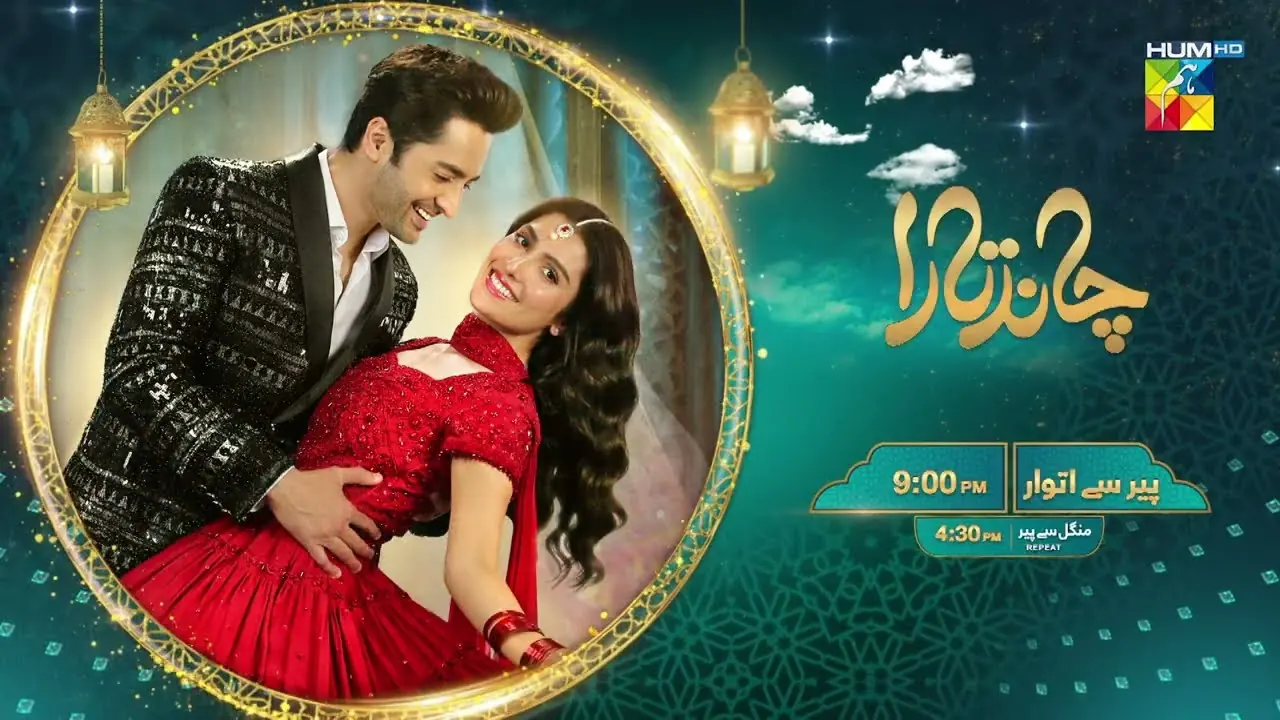
Strengths and Weaknesses
Every drama, no matter how compelling, has its strengths and weaknesses. A balanced review looks at both sides of the coin to understand why a drama resonated with audiences and where it could have improved. Chand Tara is no exception. It offered moments of brilliance, both in performances and storytelling, while also carrying flaws that some viewers pointed out. This Chand Tara Drama Review explores the strengths that made the drama stand out and the weaknesses that held it back from being flawless.
Strengths of Chand Tara
1. Strong Characterization
One of the most significant strengths of Chand Tara lies in its well-developed characters. Chand and Tara were not flat or one-dimensional; instead, they were layered, evolving through struggles, betrayals, and moments of hope. Supporting characters were also given depth, making the entire cast feel relevant to the story. This Chand Tara Drama Review highlights that strong characterization allowed viewers to connect emotionally, cheering for some while despising others.
2. Engaging Themes
The drama’s exploration of loyalty, betrayal, justice, greed, and family dynamics resonated with audiences. These universal themes gave Chand Tara a timeless appeal. Unlike some dramas that focus only on romance or revenge, Chand Tara combined multiple layers of storytelling, ensuring that viewers could connect on different emotional levels. According to this Chand Tara Drama Review, the blend of themes gave the narrative depth and richness.
3. Direction and Cinematography
The technical brilliance of direction and cinematography cannot be overstated. Visual storytelling, symbolism, and realistic settings elevated the drama beyond ordinary family sagas. Every frame carried meaning, whether through lighting, angles, or cultural aesthetics. This Chand Tara Drama Review observes that the technical strengths created a polished and visually appealing production.
4. Balanced Pacing and Twists
As discussed earlier, the pacing was one of the drama’s highlights. From its slow-burn start to intense middle episodes and satisfying conclusion, the rhythm of storytelling kept audiences engaged. Plot twists were believable and grounded in character motivations, ensuring they felt impactful rather than forced. This Chand Tara Drama Review considers this balance a major strength that helped sustain viewer interest throughout the series.
5. Powerful Performances
The cast delivered outstanding performances, another core strength of the drama. Lead actors embodied their roles with emotional authenticity, while supporting characters contributed equally to the narrative. Their portrayals made loyalty, betrayal, and family struggles feel raw and relatable. According to this Chand Tara Drama Review, the performances were one of the reasons the drama left a lasting emotional impact.
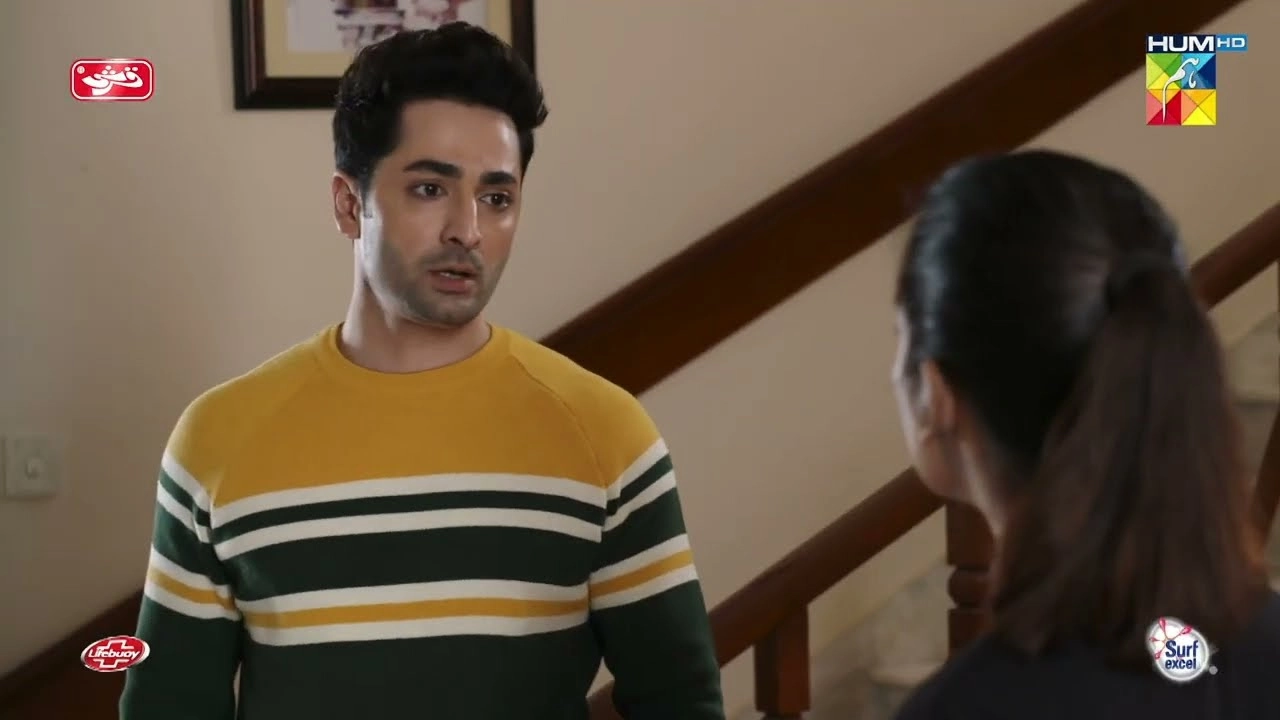
Weaknesses of Chand Tara
1. Predictable Moments
Despite its clever twists, some parts of Chand Tara fell into predictability. A few viewers felt they could anticipate certain betrayals or outcomes because of familiar tropes common in South Asian dramas. While these moments did not overshadow the overall plot, they slightly reduced the element of surprise. This Chand Tara Drama Review points out that avoiding clichés could have strengthened the narrative even further.
2. Slow Initial Episodes
Although the slow-burn introduction allowed deeper character development, some audiences found the early pacing too slow. A few episodes seemed stretched with repetitive dialogues or extended scenes that could have been condensed. For impatient viewers, this tested their patience before the story fully picked up. The Chand Tara Drama Review notes this as a minor weakness, though it later turned into a payoff once conflicts intensified.
3. Uneven Focus on Supporting Characters
While many supporting characters were developed well, a few felt underutilized. Some storylines were introduced with potential but were later sidelined or left unresolved. This left certain characters feeling less impactful compared to the main cast. According to this Chand Tara Drama Review, giving equal attention to all arcs could have added even more richness to the story.
4. Occasional Melodrama
Even though the drama mostly leaned toward realism, there were moments when it slipped into melodrama. Certain emotional confrontations felt exaggerated, which broke the otherwise subtle and mature tone. While these scenes might have appealed to fans of heightened drama, they slightly weakened the show’s consistency. The Chand Tara Drama Review identifies this as a minor flaw that could have been toned down.
5. Limited Exploration of Justice Theme
Although justice was one of the central themes, some viewers felt it wasn’t explored as deeply as loyalty, betrayal, or family dynamics. Certain conflicts resolved too easily, without fully diving into moral or legal consequences. This Chand Tara Drama Review suggests that a stronger exploration of justice could have made the drama more socially relevant
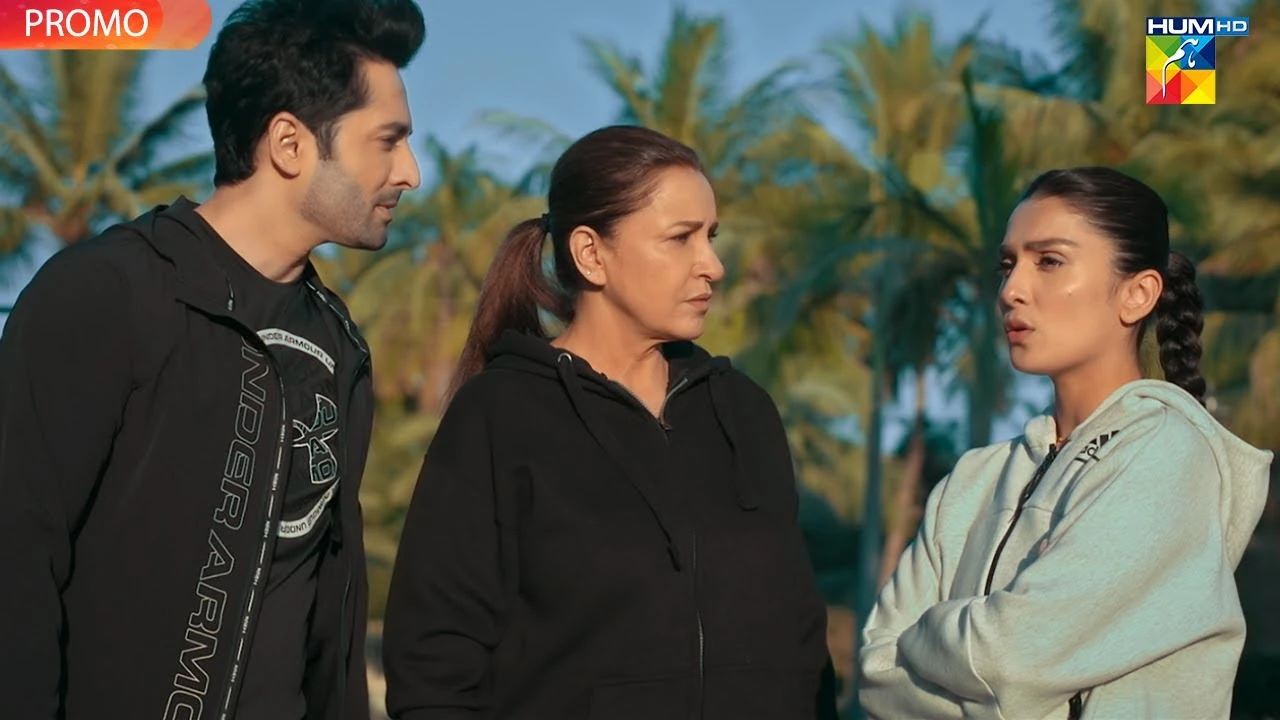
Overall Balance Between Strengths and Weaknesses
When weighing strengths against weaknesses, Chand Tara emerges as a drama that excelled more often than it faltered. Its strengths—powerful performances, strong themes, balanced pacing, and brilliant cinematography—greatly outweighed its weaknesses. The flaws, while noticeable, were minor compared to the overall emotional and visual impact the show delivered.
This Chand Tara Drama Review concludes that the drama’s strengths gave it the longevity and popularity it deserved, while its weaknesses serve as constructive reminders of areas where future productions could improve. No drama is perfect, but Chand Tara came impressively close, creating an unforgettable experience for its audience.
Audience Reception
A drama can be brilliantly written, beautifully acted, and visually appealing, but its real test lies in how audiences receive it. Chand Tara passed this test with flying colors, garnering a wide range of reactions from both critics and regular viewers. This section of the Chand Tara Drama Review looks at how the drama was perceived by its audience, analyzing ratings, social media discussions, cultural impact, and overall sentiment.
Initial Hype and Expectations
Before its release, Chand Tara already had audiences buzzing with excitement. The teasers and promotional material highlighted a strong mix of romance, family intrigue, and emotional depth. Viewers were eager to see how the lead actors would perform, and the pairing of a well-loved cast only amplified the anticipation. According to this Chand Tara Drama Review, the pre-release hype created high expectations, which can often be risky. However, the drama largely lived up to its promise, rewarding viewers with a layered and engaging narrative.
Positive Audience Feedback
The drama struck a chord with audiences almost immediately. Many praised its strong storytelling, particularly the way it blended universal themes like loyalty, betrayal, greed, and justice with local cultural nuances. Social media platforms were flooded with viewers sharing their favorite dialogues, scenes, and character arcs. Fan pages dedicated to the drama grew rapidly, showcasing edits, memes, and emotional reactions.
One of the most frequently mentioned positives in audience discussions was the realism of family dynamics. Viewers found the depiction of sibling rivalry, parental influence, and generational clashes highly relatable. This Chand Tara Drama Review notes that the relatability of the story was a major reason audiences connected so deeply with it.
Criticism from Some Viewers
Of course, no drama is universally loved, and Chand Tara was no exception. While many appreciated its slow-burn storytelling, some viewers criticized the pacing of the initial episodes. They felt the story took too long to build momentum and risked losing impatient audiences. Others pointed out moments of melodrama that felt unnecessary in an otherwise grounded narrative.
Additionally, a small segment of the audience expressed disappointment in how certain subplots were handled. Some characters who seemed important early on were not given satisfying conclusions. According to this Chand Tara Drama Review, while these criticisms were valid, they did not overshadow the drama’s overall impact, as the majority of viewers remained invested until the end.
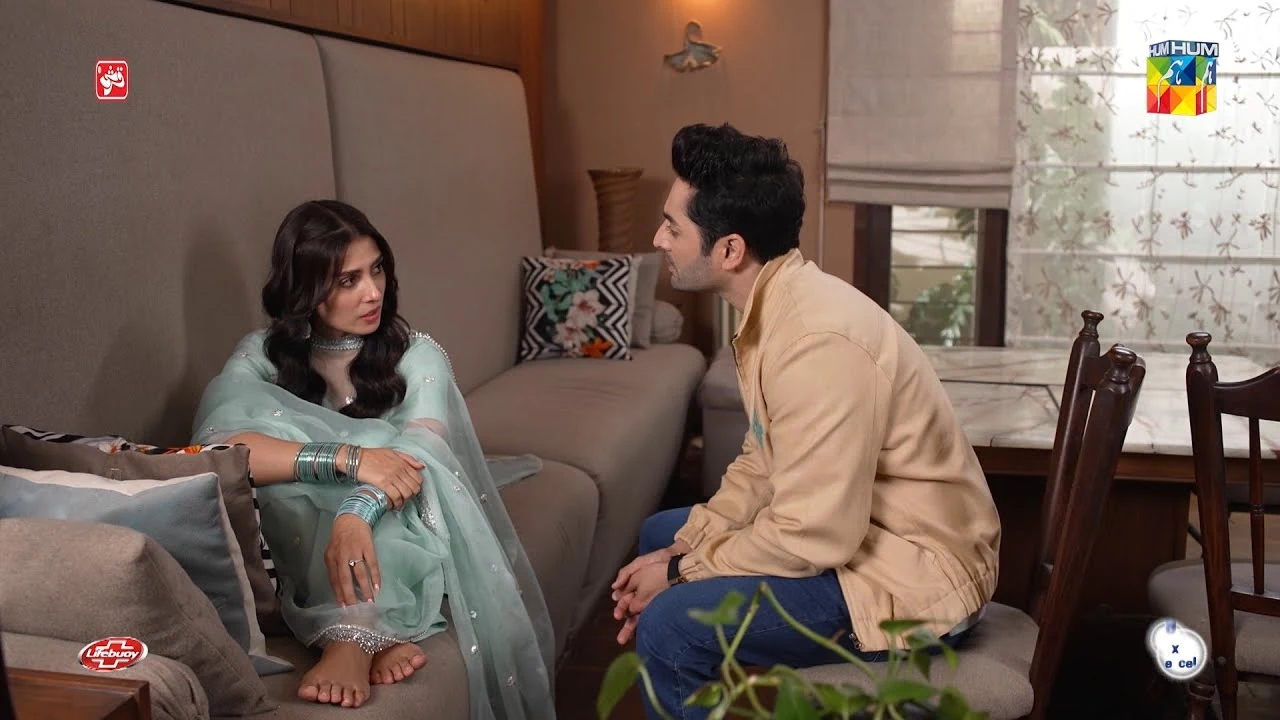 .
.
Ratings and Popularity
From a ratings perspective, Chand Tara performed exceptionally well. It consistently drew high viewership numbers, especially during its middle and final episodes when the story reached peak intensity. Many industry experts noted that the drama’s ratings reflected not only the popularity of the cast but also the strength of its storytelling.
Online streaming platforms also reported impressive numbers, with international audiences tuning in to watch. This global appeal highlighted how the drama’s universal themes transcended cultural boundaries. The Chand Tara Drama Review observes that the blend of local flavor and universal storytelling played a big role in the show’s broad popularity.
Social Media and Fan Engagement
One of the strongest indicators of audience reception today is social media engagement, and Chand Tara excelled in this area. Hashtags related to the drama often trended on platforms like Twitter and Instagram during new episode releases. Viewers actively dissected each plot twist, speculated on upcoming episodes, and even debated the morality of certain characters.
Fan theories became a major talking point, with audiences predicting betrayals and alliances before they were revealed on screen. This Chand Tara Drama Review emphasizes that this kind of engagement is a hallmark of a drama that has successfully captured its audience’s imagination.
Emotional Impact on Audiences
Beyond ratings and numbers, the drama’s emotional impact was evident in how audiences expressed themselves. Many shared personal reflections, comparing the struggles of Chand Tara’s characters to their own family experiences. Some even admitted that the drama made them reconsider their views on loyalty, greed, and justice in their personal lives. This emotional resonance is one of the highest forms of audience appreciation, and according to this Chand Tara Drama Review, it’s what made the show memorable long after it ended.
Critics vs. Audience
Interestingly, while critics praised the drama’s technical excellence and performances, they were slightly harsher on its pacing and occasional predictability. Audiences, however, were more forgiving, valuing emotional engagement over technical flaws. This difference in perception highlighted how the drama catered more to emotional resonance than to critical perfection. The Chand Tara Drama Review notes that this balance worked in the show’s favor, as audience loyalty ultimately matters most in the world of television.
Cultural and Social Influence
Another notable aspect of audience reception was the cultural conversations the drama sparked. Families watching together often discussed the issues portrayed in the drama, such as greed’s consequences or the importance of standing up for justice within family conflicts. The show became more than entertainment—it became a talking point in households and online forums alike. This Chand Tara Drama Review recognizes that this cultural influence solidified the drama’s place in viewers’ lives.
Conclusion of Audience Reception
In conclusion, the audience reception of Chand Tara was overwhelmingly positive, with only minor criticisms about pacing and certain subplots. The drama captured the hearts of viewers by combining strong performances, relatable themes, and emotionally charged storytelling. Ratings, social media engagement, and cultural discussions all testify to the drama’s wide-reaching impact. According to this Chand Tara Drama Review, audience reception was one of the clearest indicators of the drama’s success, proving that it was not only a television show but also an emotional experience shared across communities.
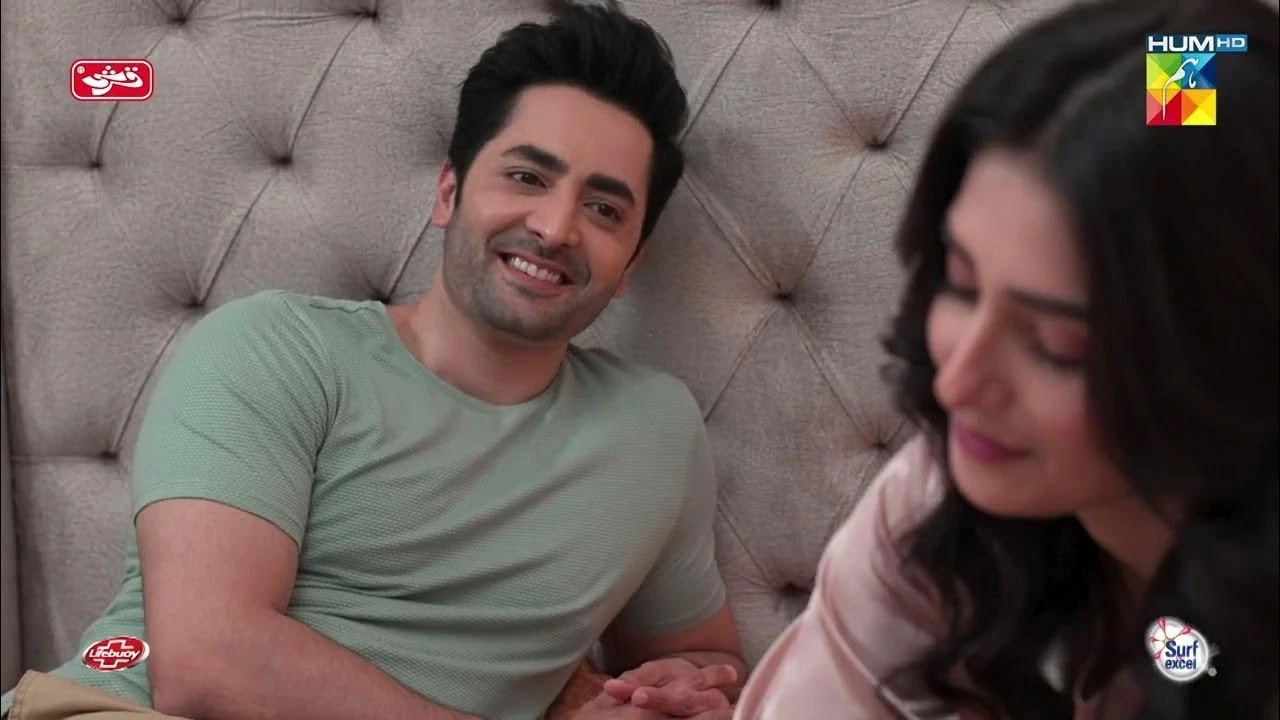
Final Verdict
Every drama leaves behind a trail of emotions, lessons, and reflections, and the final verdict determines whether it succeeds in achieving what it set out to do. After carefully analyzing the introduction, background, plot summary, characters, themes, direction, pacing, and audience reception, it is time to conclude with the Final Verdict of Chand Tara Drama Review. This section brings together the strengths, weaknesses, and overall impact of the drama, offering a well-rounded perspective on its place in Pakistani television.
A Drama That Balanced Entertainment and Lessons
At its heart, Chand Tara was more than just a story of love and conflict. It was a drama that combined entertainment with meaningful social messages. By exploring themes such as loyalty, betrayal, justice, greed, and family dynamics, it managed to deliver both emotional engagement and moral lessons. According to this Chand Tara Drama Review, this balance is what set the drama apart from many others that rely solely on melodrama without offering substance.
Performances That Carried the Drama
The acting performances of the cast were undeniably one of the strongest aspects of the drama. The leads brought authenticity to their roles, making viewers root for them in moments of love and despair. Supporting actors also played their part with precision, ensuring that every subplot contributed to the larger story. In this Chand Tara Drama Review, it becomes evident that without such compelling performances, the emotional depth of the drama would have been far less impactful.
Direction and Cinematography Excellence
Another critical factor in the drama’s success was its technical brilliance. From camera work to set design, Chand Tara created a visual identity that was both modern and deeply rooted in cultural aesthetics. The lighting enhanced emotional scenes, while the direction ensured that no scene felt unnecessary. Symbolism was used effectively, making even silent moments speak volumes. The Chand Tara Drama Review concludes that this technical excellence elevated the drama into a more polished and cinematic experience.
Strengths Outweighing Weaknesses
No drama is perfect, and Chand Tara had its share of weaknesses. Predictable moments, slow initial episodes, and underutilized characters were some of the flaws noted by both critics and audiences. However, these shortcomings were overshadowed by the drama’s strengths. The gripping narrative, layered themes, strong character arcs, and cultural relevance made these minor flaws forgivable. According to this Chand Tara Drama Review, the strengths not only outweighed the weaknesses but also made the drama memorable long after its conclusion.
Emotional Resonance With Audiences
Perhaps the greatest achievement of Chand Tara was its ability to resonate emotionally with audiences. Viewers didn’t just watch the story unfold—they felt it. The struggles of the characters reminded them of their own family dynamics, while the themes of loyalty and betrayal made them reflect on their relationships. This Chand Tara Drama Review emphasizes that emotional connection is the ultimate measure of a drama’s success, and Chand Tara excelled in this area.
Impact Beyond Borders
In today’s world, Pakistani dramas are no longer confined to local audiences. Chand Tara managed to capture international attention through online streaming platforms, where it was watched by audiences from various cultural backgrounds. Its universal themes made it relatable to people outside of Pakistan, proving that good storytelling transcends language and borders. This Chand Tara Drama Review recognizes the drama’s global impact as one of its lasting achievements.
Final Evaluation
When all aspects are considered, Chand Tara emerges as a drama that successfully combined heart, substance, and style. It gave audiences characters they could care about, themes they could reflect on, and visuals they could enjoy. Its flaws, while noticeable, were not significant enough to undermine its overall brilliance.
According to this Chand Tara Drama Review, the drama deserves to be remembered as one of the standout serials of its time. It upheld the reputation of Pakistani television for delivering emotionally rich and culturally grounded stories, while also pushing the boundaries with modern production values.
Verdict in Simple Words
If asked whether Chand Tara is worth watching, the answer is a resounding yes. It is not just a story to pass the time; it is a drama that engages the mind and the heart. For anyone seeking a meaningful narrative with emotional highs, moral lessons, and cinematic quality, Chand Tara is a must-watch. The Chand Tara Drama Review concludes that it successfully met and even exceeded audience expectations, making it a drama that will continue to be discussed and appreciated for years to come.

Conclusion – Wrapping Up the Chand Tara Drama Review
Every story has an ending, and every review deserves a thoughtful conclusion. After carefully exploring the various aspects of this drama—from its plot, characters, and themes, to its strengths, weaknesses, direction, and audience reception—it is clear that Chand Tara carved a distinct place in the world of Pakistani television. This Chand Tara Drama Review concludes by summarizing the journey of the drama, its overall impact, and why it remains significant for audiences both in Pakistan and abroad.
A Journey of Emotions and Lessons
Chand Tara was not simply entertainment; it was an emotional journey filled with lessons that reflected real-life struggles. Through its exploration of loyalty, betrayal, justice, greed, and family dynamics, it shed light on the complexities of human relationships. Viewers were reminded that life is never black and white—choices come with consequences, and relationships are fragile yet powerful. According to this Chand Tara Drama Review, the drama successfully blended storytelling with meaning, ensuring it was not forgotten after the credits rolled.
Characters That Stay With You
One of the most remarkable aspects of Chand Tara was its characters. They were not just fictional figures but reflections of people we meet in real life—family members, friends, rivals, or even ourselves. Chand’s resilience, Tara’s emotional strength, and the contrasting roles of supporting characters created a cast that left lasting impressions. This Chand Tara Drama Review emphasizes that memorable characters are the backbone of a successful drama, and Chand Tara achieved this masterfully.
Cultural and Social Relevance
Another important takeaway from the drama was its cultural resonance. By weaving in family conflicts, generational gaps, and moral dilemmas, it mirrored the everyday struggles of Pakistani households. Yet, its themes were universal enough to appeal to global audiences as well. This cultural authenticity, paired with universal storytelling, made Chand Tara not only relatable but also thought-provoking. As highlighted in this Chand Tara Drama Review, the drama became more than just a series—it became part of social conversations, sparking debates about justice, family loyalty, and the dangers of unchecked greed.
Strengths That Outshone Flaws
Though the drama had its weaknesses—predictable moments, slow pacing in its early episodes, and underutilized side characters—its strengths overshadowed them. The compelling storyline, strong acting performances, technical brilliance, and emotional resonance carried the drama forward with remarkable success. According to this Chand Tara Drama Review, the ability to rise above its flaws is what made Chand Tara a standout production.
Audience Reception as Proof of Success
The overwhelmingly positive reception of Chand Tara by audiences serves as undeniable proof of its success. Viewers across different demographics engaged with the drama, whether through family discussions at home or heated debates on social media platforms. Its consistent ratings, trending hashtags, and international viewership cemented its position as a drama that left a mark. This Chand Tara Drama Review notes that audience connection is the ultimate compliment a drama can receive, and Chand Tara achieved this effortlessly.
Legacy of Chand Tara
The legacy of Chand Tara lies in its timeless themes and emotional storytelling. Years from now, when viewers look back on standout Pakistani dramas, Chand Tara will likely be remembered as one that not only entertained but also offered meaningful commentary on human relationships. Its ability to spark reflection while still being engaging and enjoyable gives it a lasting relevance. According to this Chand Tara Drama Review, that is the hallmark of a truly great drama.
Final Thoughts
In wrapping up, Chand Tara emerges as a drama that balanced heart, intellect, and artistry. It had the courage to address uncomfortable truths, the skill to present them beautifully, and the emotional depth to keep viewers invested. Whether it was the intricacies of family loyalty, the sting of betrayal, or the hope for justice, every theme was presented in a way that resonated deeply.
The Chand Tara Drama Review concludes with a simple but powerful verdict: Chand Tara was not just another drama on television—it was an experience. It reminded audiences of the power of storytelling, the importance of family, and the consequences of human choices. For anyone who has yet to watch it, this review strongly recommends adding Chand Tara to their must-watch list, as it is a drama that delivers far more than entertainment—it delivers meaning, reflection, and unforgettable moments. Thanks for Visiting 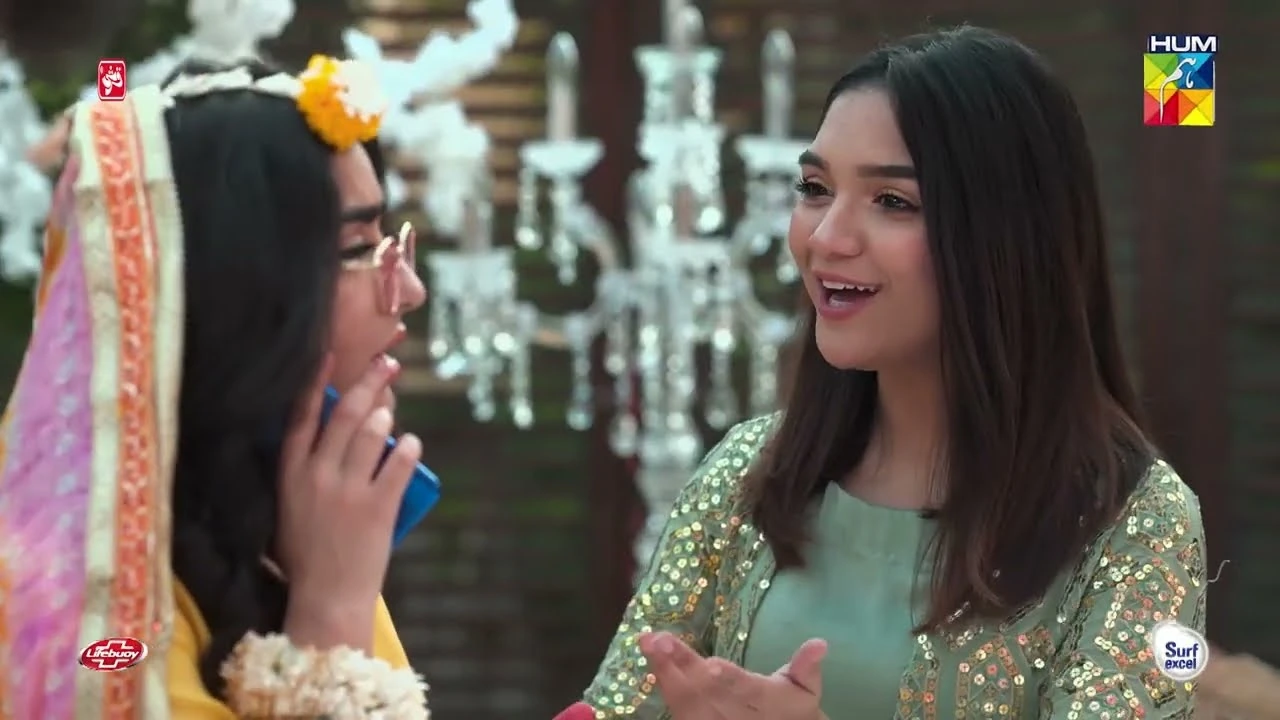
FAQs
1. What is Chand Tara about?
Chand Tara is a Pakistani drama that beautifully blends romance, family relationships, and moral lessons. At its core, it tells the story of Chand and Tara, two individuals caught between personal dreams, family obligations, and societal pressures. The drama highlights key themes such as loyalty, betrayal, greed, and justice, all woven into a gripping narrative. This Chand Tara Drama Review reveals that beyond the love story, the drama explores the complexities of family dynamics, where generational conflicts and hidden motives often shape decisions. What makes Chand Tara special is how it connects deeply with audiences—viewers find reflections of their own lives in the characters’ struggles and choices.
2. Who are the lead actors in Chand Tara?
The success of Chand Tara owes much to its stellar cast. The leads brought depth, authenticity, and emotional strength to their roles, making Chand and Tara relatable and memorable. In addition, the supporting cast played an equally significant role, ensuring that no subplot felt incomplete or unimportant. According to this Chand Tara Drama Review, the actors didn’t just perform—they lived their characters, which is why viewers felt such strong emotional connections. Their performances added intensity to key scenes of love, betrayal, and redemption. The on-screen chemistry between the leads became one of the most discussed aspects of the show, further boosting its popularity both locally and internationally.
3. What themes does Chand Tara explore?
The drama focuses on universal themes that resonate across cultures. Loyalty and betrayal are central, showing how trust can both bind and break families. Justice is another recurring theme, as characters struggle to overcome greed and dishonesty. Family dynamics also play a vital role, portraying conflicts between generations and the sacrifices made for loved ones. As this Chand Tara Drama Review highlights, what makes these themes powerful is their relatability—audiences don’t just watch the story unfold; they reflect on their own lives. The drama also warns against greed, showing how unchecked ambition can destroy relationships. Ultimately, Chand Tara becomes a story about choices, morality, and the lasting impact of human actions.
4. Is Chand Tara worth watching?
Yes, absolutely. If you’re looking for a drama that combines entertainment with meaningful lessons, Chand Tara is a must-watch. The story is gripping, the performances are outstanding, and the themes are relatable. This Chand Tara Drama Review concludes that the drama’s strength lies in its balance—it offers romance and family drama while also making viewers think about justice, loyalty, and morality. The pacing may feel slow in the beginning, but once the story picks up, it becomes deeply engaging. For those who enjoy Pakistani dramas with substance and emotional depth, Chand Tara stands out as one of the best choices.
5. How was the audience reception of Chand Tara?
The audience reception was overwhelmingly positive. Viewers praised its emotional storytelling, relatable family dynamics, and strong performances. Social media buzzed with discussions after every episode, with fan theories and debates trending online. According to this Chand Tara Drama Review, audiences especially connected with the realism of family conflicts portrayed in the drama. While some criticized the slow pacing of the initial episodes, most felt the story’s emotional payoff was worth it. The drama also achieved high ratings, proving its popularity among viewers of all age groups. Internationally, Chand Tara found success through online platforms, making it a global favorite among Pakistani drama fans.
6. What are the strengths of Chand Tara?
The greatest strength of Chand Tara lies in its storytelling and character development. The plot is emotionally layered, exploring universal themes like loyalty, greed, and justice in ways that resonate deeply. Strong performances from the cast added further authenticity to the narrative. Another strength is its technical execution—direction, cinematography, and set design gave the drama a polished and cinematic feel. This Chand Tara Drama Review highlights its emotional resonance as a key strength: audiences didn’t just watch the drama; they felt it. From tear-jerking moments to powerful confrontations, the show succeeded in keeping viewers emotionally invested until the end.
7. Were there any weaknesses in Chand Tara?
Like any drama, Chand Tara wasn’t without flaws. The most common criticism was its slow start, which tested the patience of some viewers. Certain subplots also felt underdeveloped, leaving audiences wanting more closure for secondary characters. At times, melodrama seemed slightly overdone, especially in intense family conflict scenes. However, as this Chand Tara Drama Review points out, these weaknesses did not overshadow the drama’s overall brilliance. Once the story gained momentum, the plot twists, character arcs, and emotional depth more than compensated for the slow build. The strengths far outweighed the flaws, making Chand Tara a memorable viewing experience.
8. What makes Chand Tara different from other Pakistani dramas?
What sets Chand Tara apart is its ability to balance entertainment with moral lessons. While many dramas focus solely on love stories or family disputes, Chand Tara goes deeper, highlighting the consequences of greed, the fragility of loyalty, and the importance of justice. This Chand Tara Drama Review also notes that its realistic portrayal of family dynamics resonated strongly with audiences, making it feel authentic rather than overly dramatized. Its blend of cinematic visuals, strong performances, and cultural relevance made it stand out in a crowded industry. In short, Chand Tara was not just a drama—it was an experience that left a lasting impact.
9. Did Chand Tara achieve international popularity?
Yes. Thanks to streaming platforms, Chand Tara reached audiences beyond Pakistan, gaining popularity among South Asian communities abroad as well as viewers unfamiliar with Pakistani dramas. Its universal themes of family, love, loyalty, and justice appealed to diverse cultures. This Chand Tara Drama Review highlights that international audiences appreciated the balance of cultural authenticity and universal storytelling. The show proved that Pakistani dramas have the potential to cross borders and resonate with viewers worldwide, further cementing the global reputation of the industry.
10. What is the final verdict of Chand Tara Drama Review?
The final verdict is that Chand Tara is a drama worth remembering. It successfully blended emotional depth with powerful themes, delivered strong performances, and created a meaningful viewing experience. While it had minor flaws, its strengths in storytelling, direction, and audience engagement made it one of the standout dramas of its time. According to this Chand Tara Drama Review, the drama’s legacy lies in how it made audiences reflect on loyalty, betrayal, and family bonds while keeping them entertained. For anyone looking for a drama that combines heart and meaning, Chand Tara is highly recommended.



